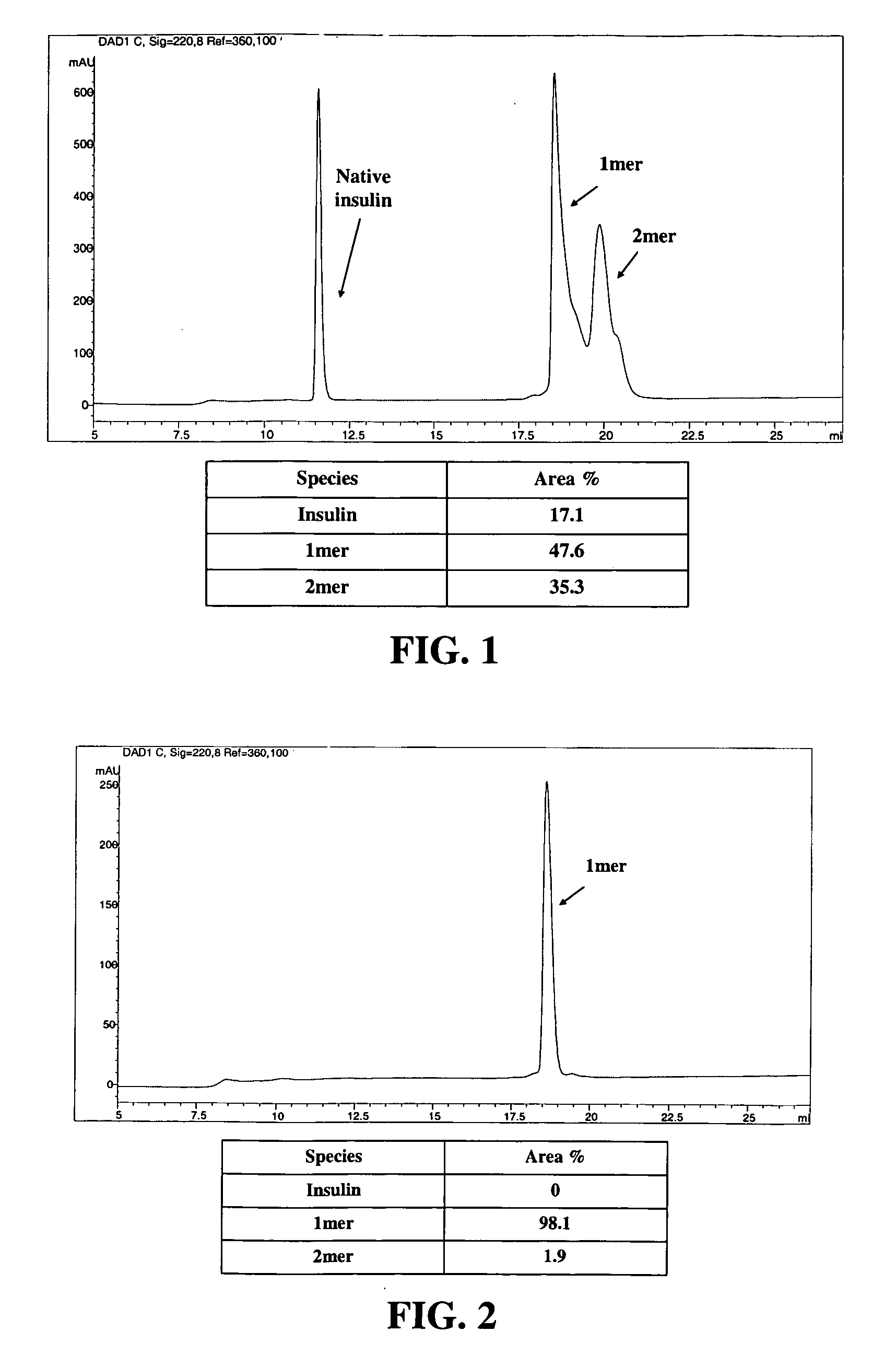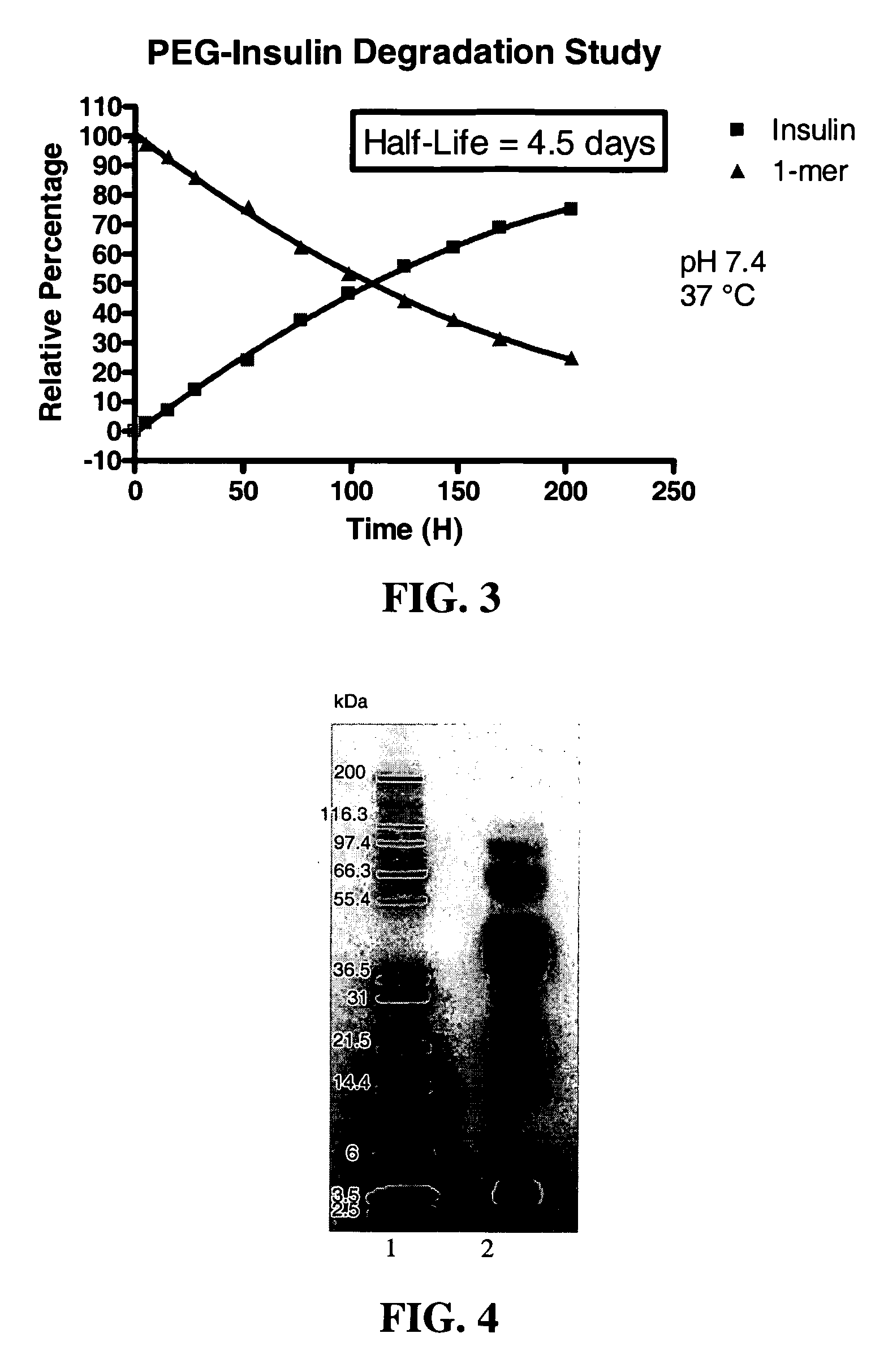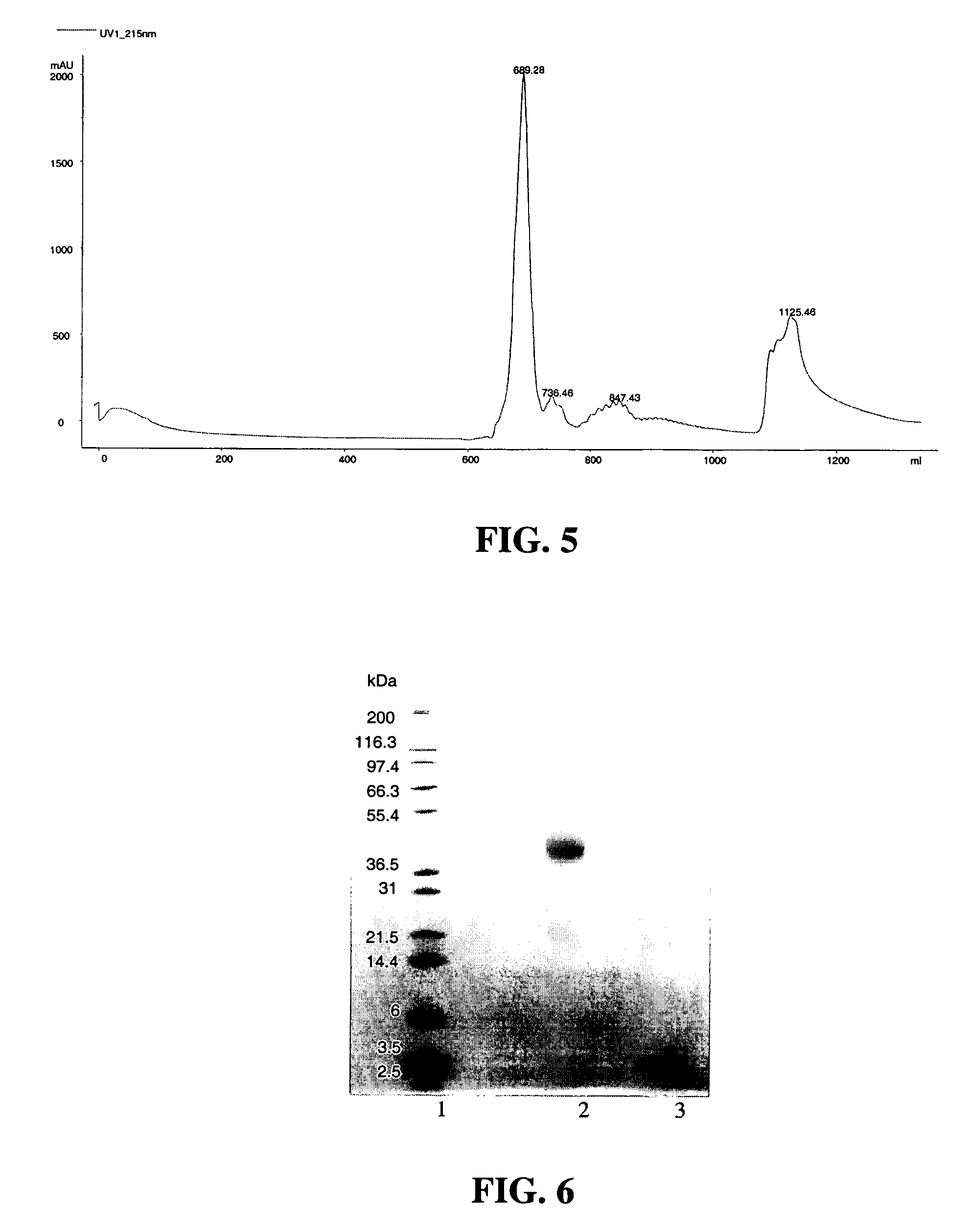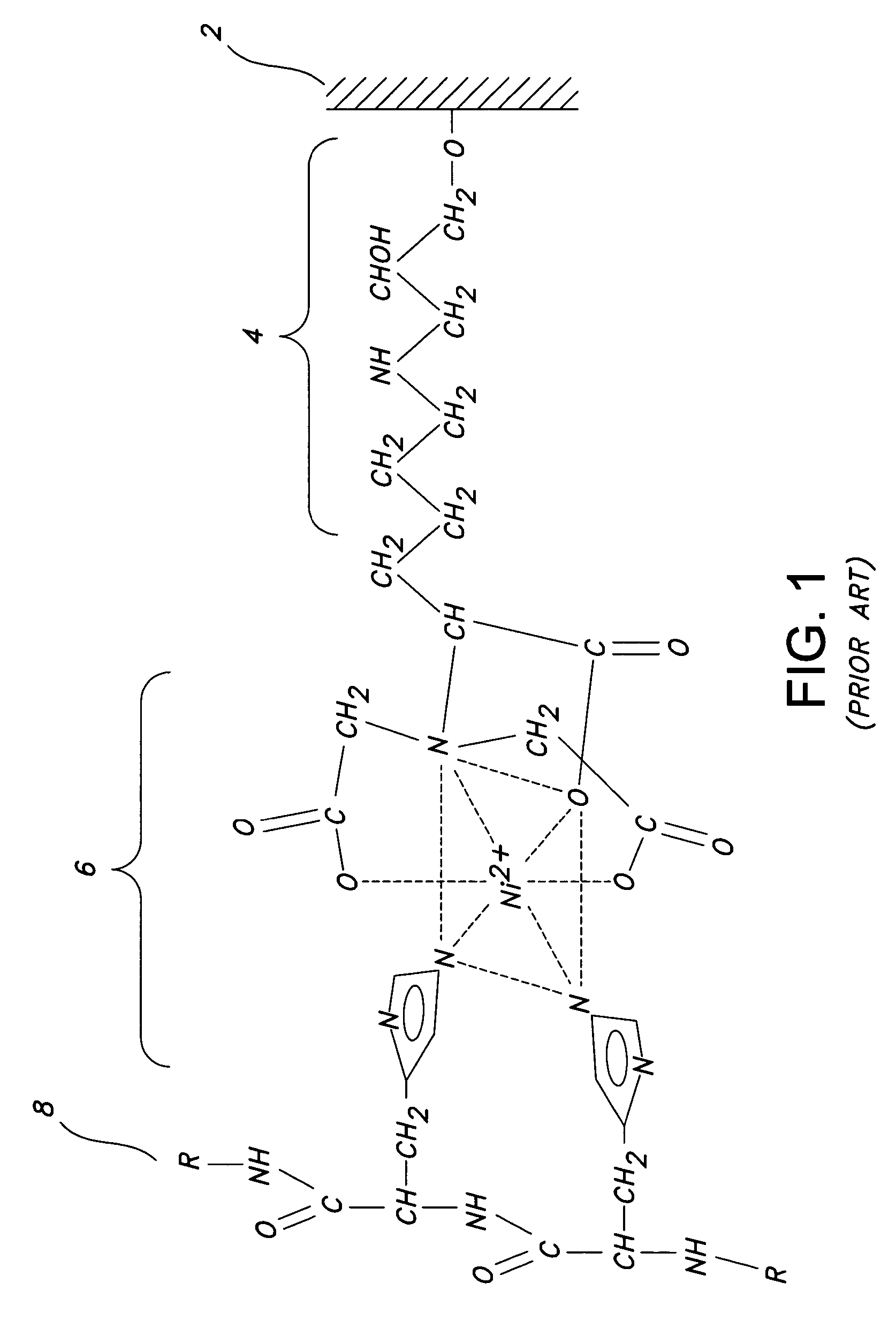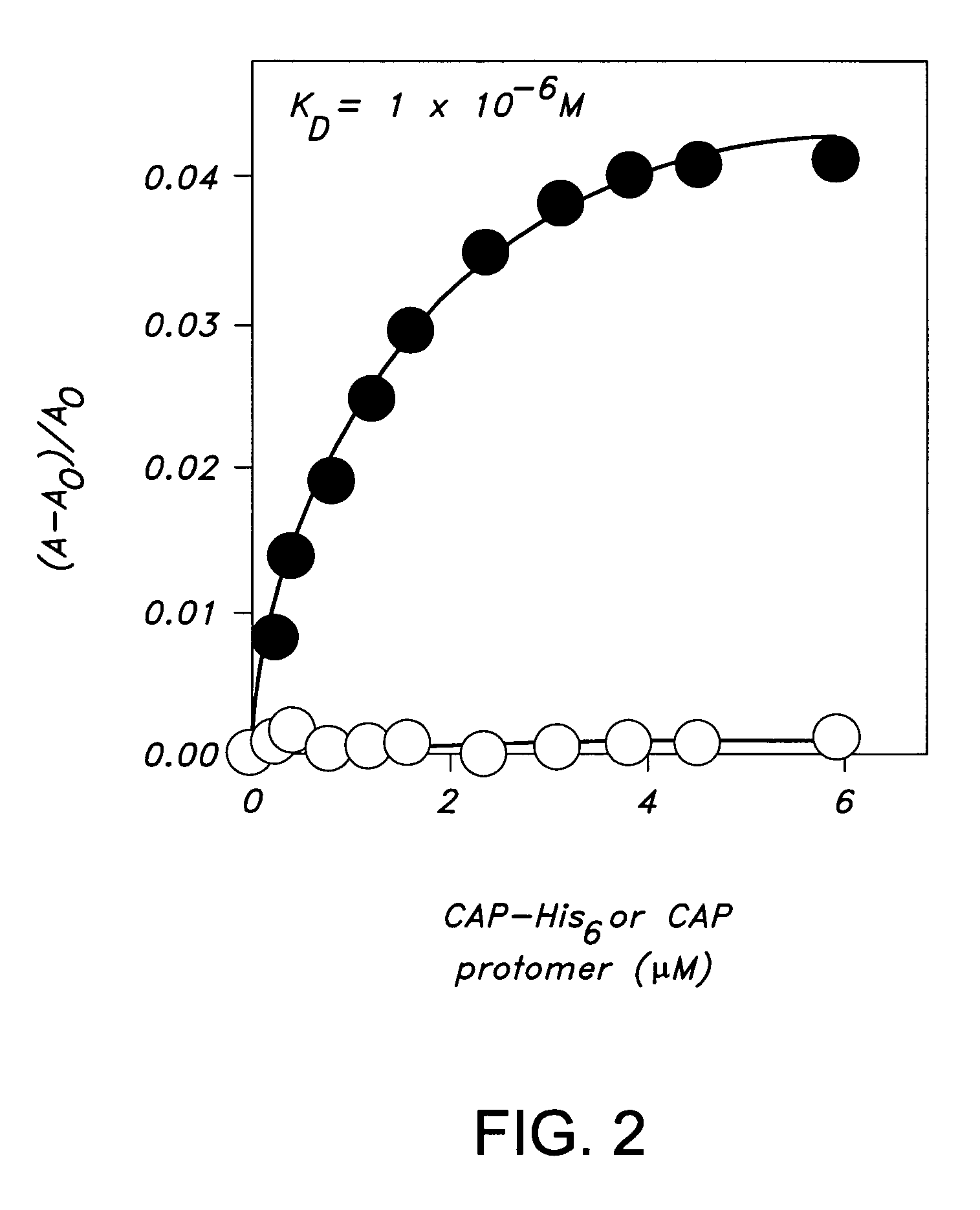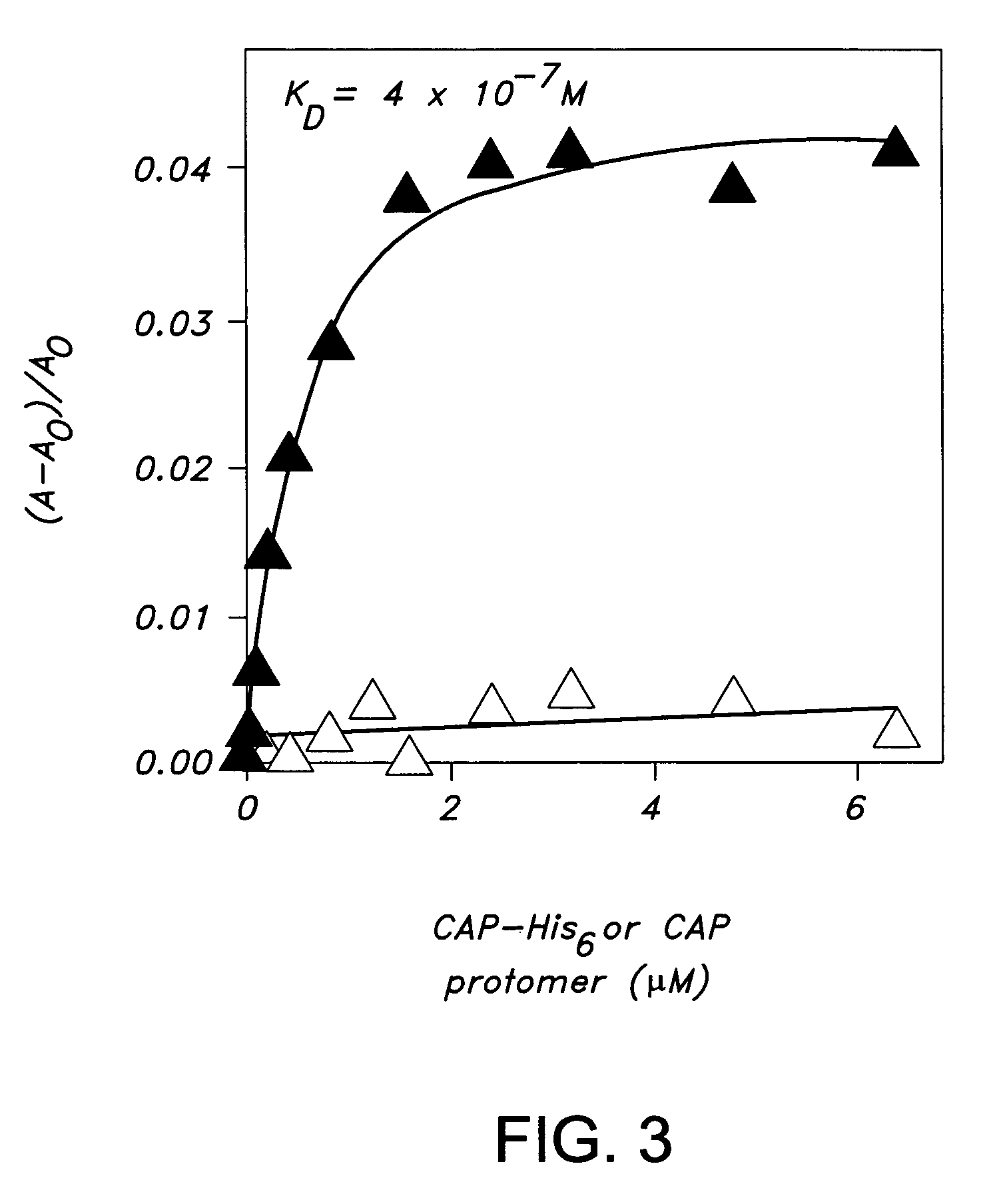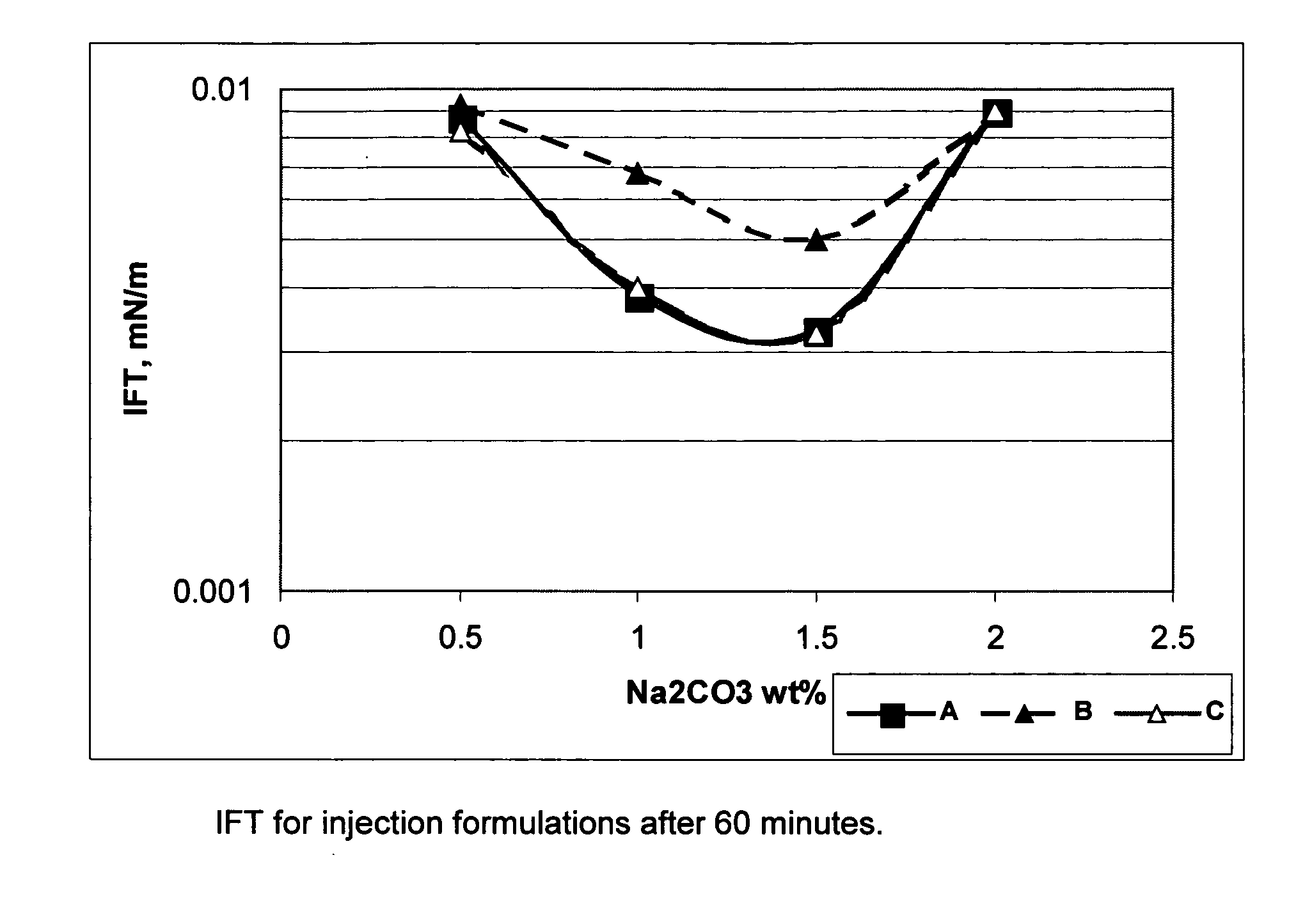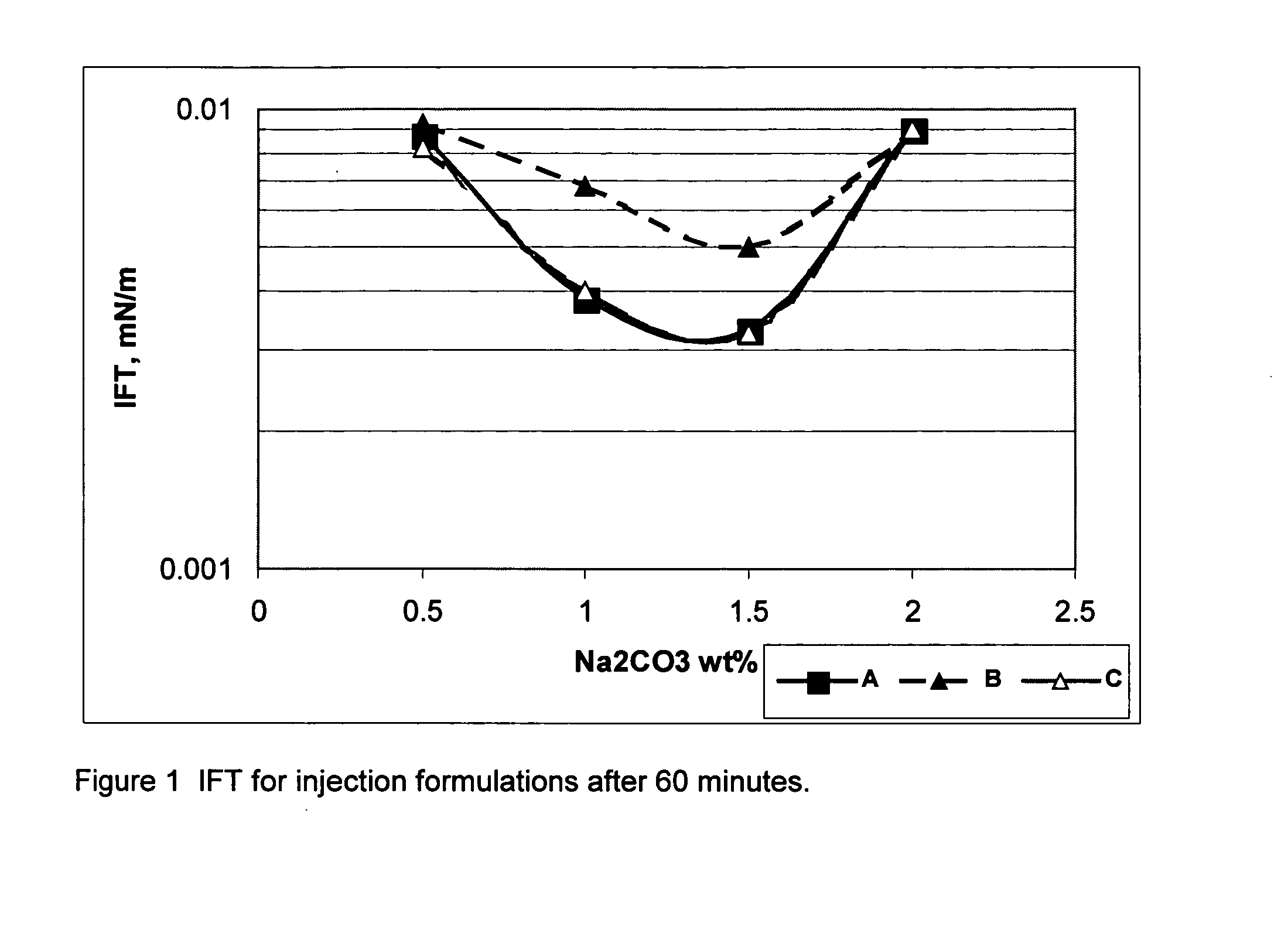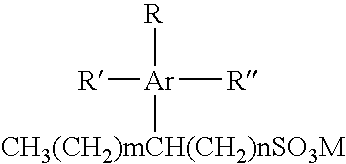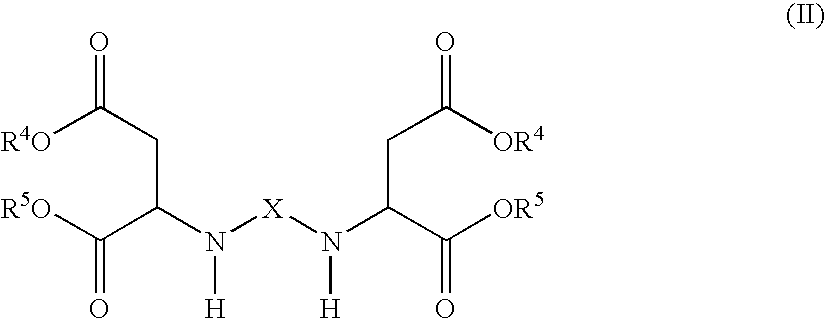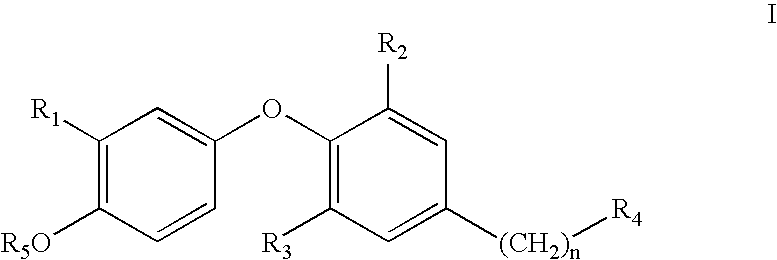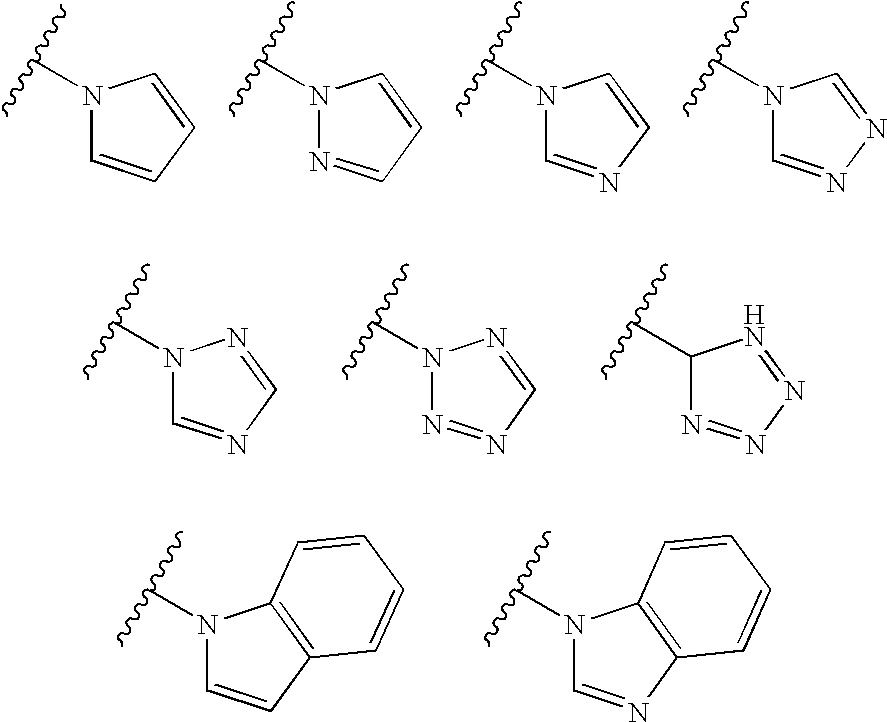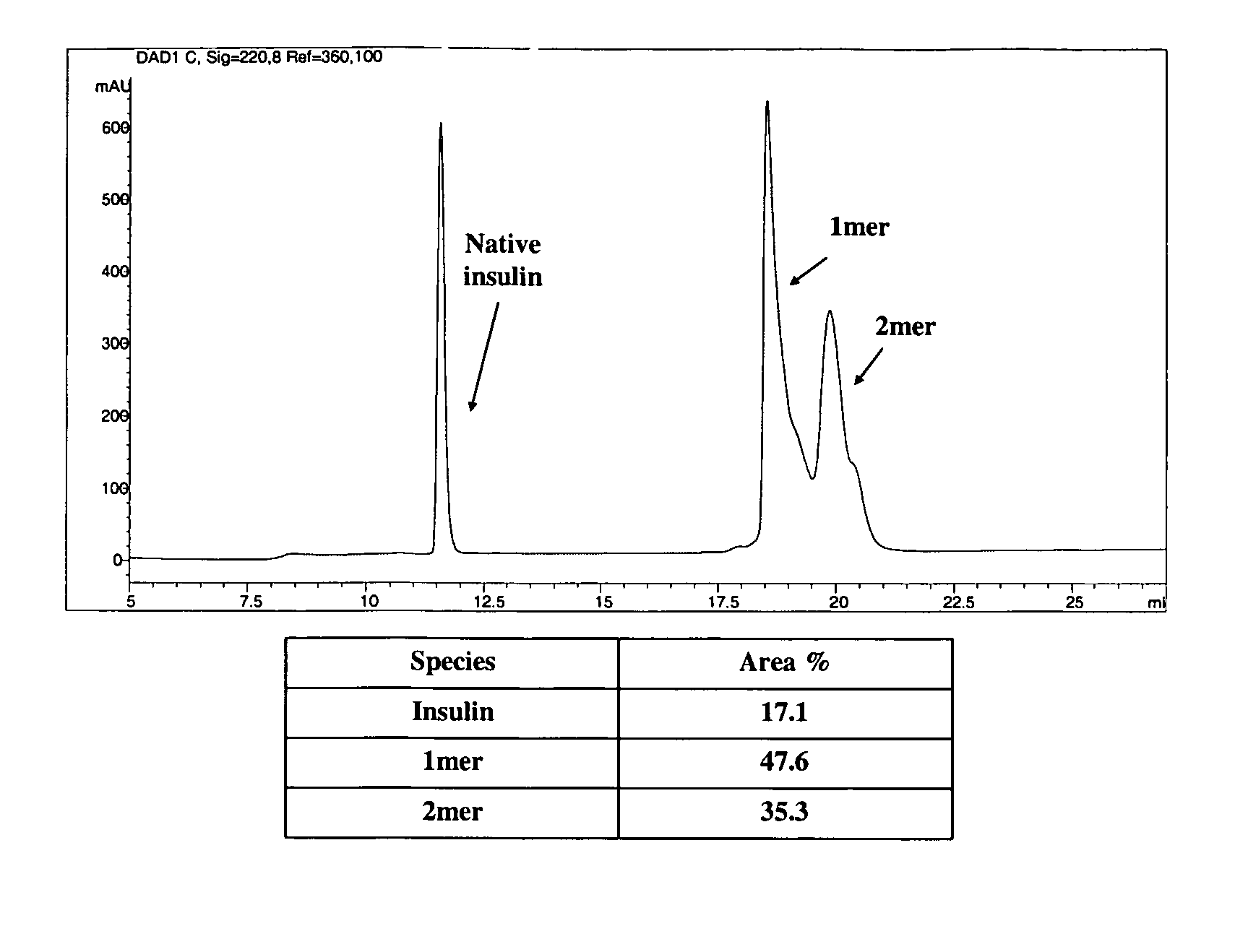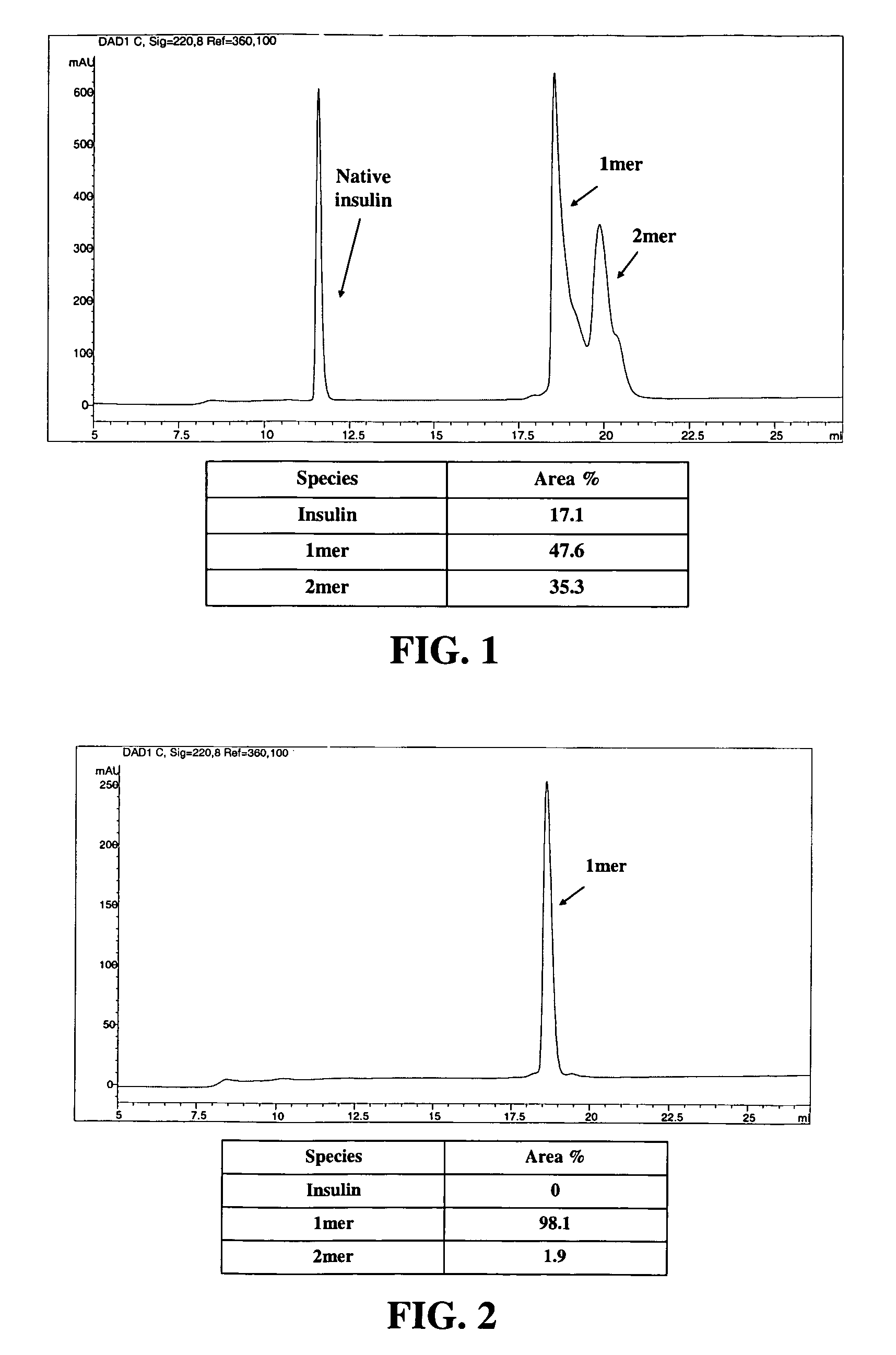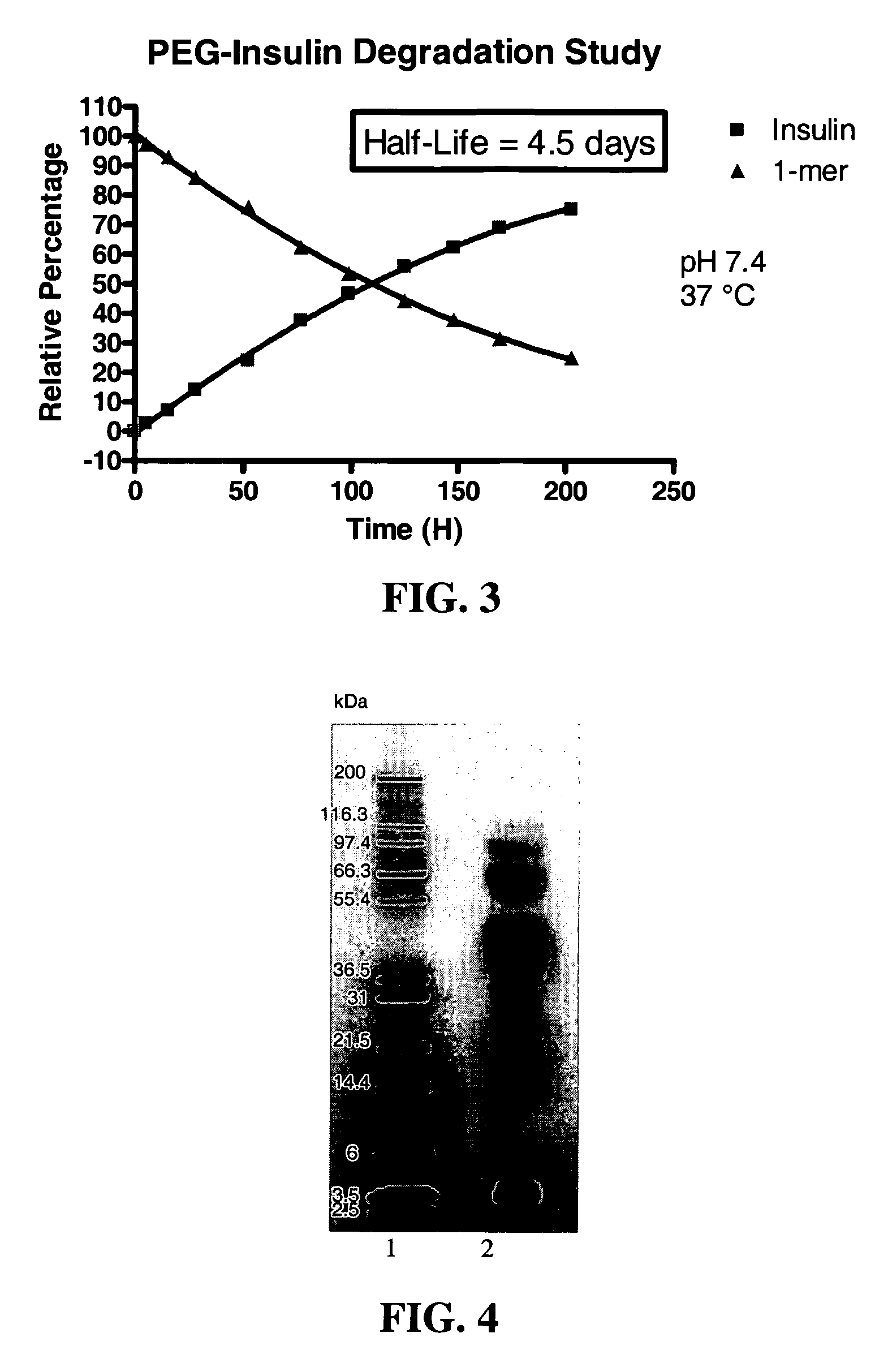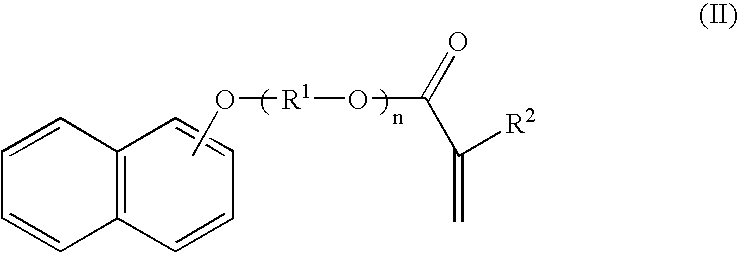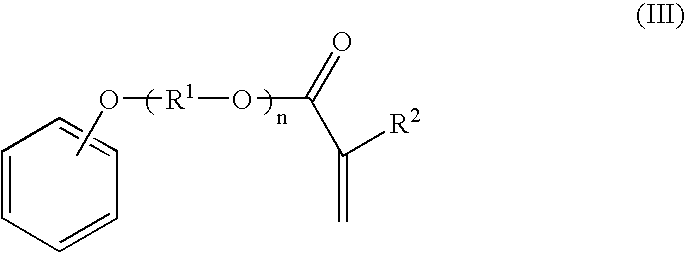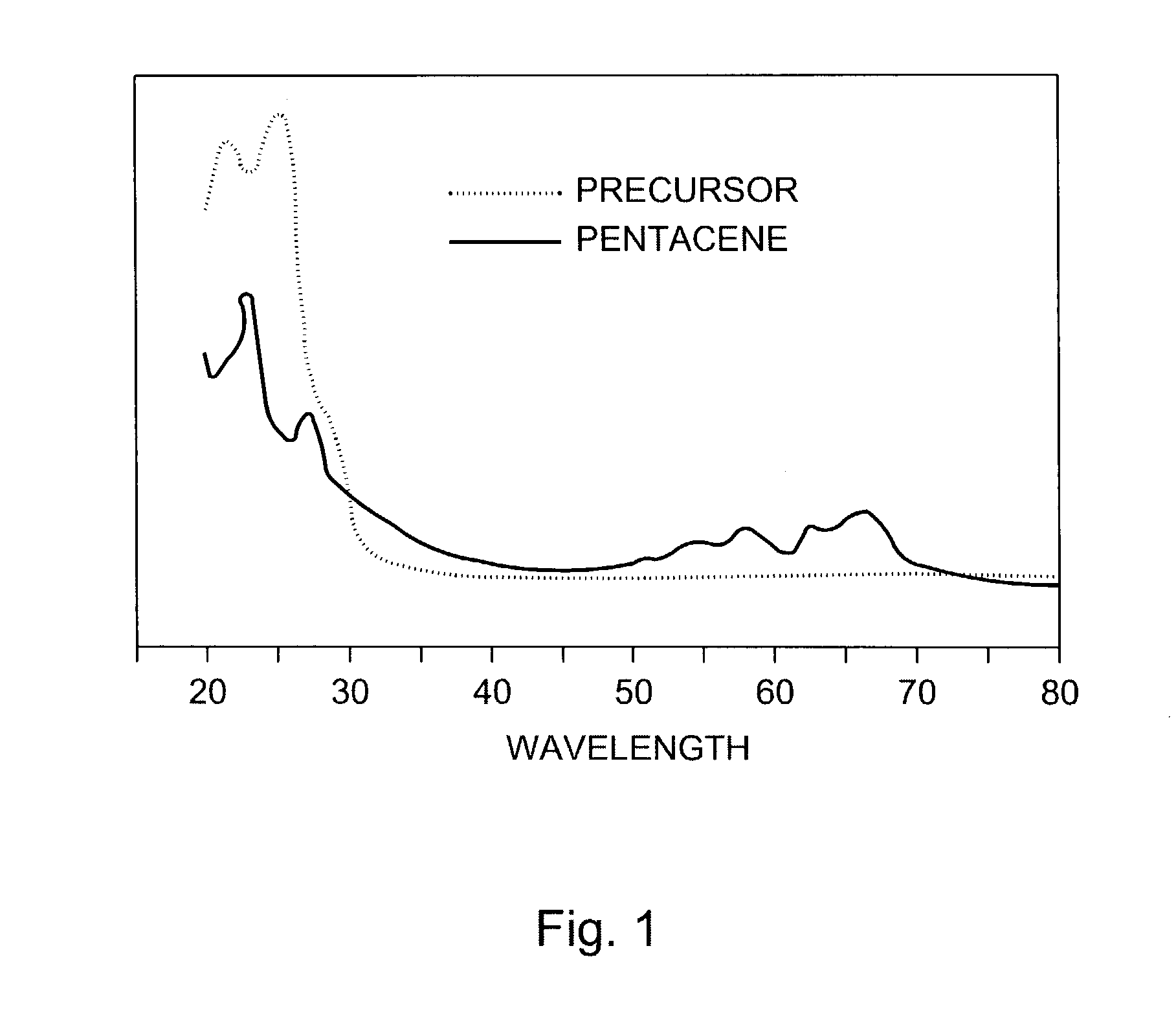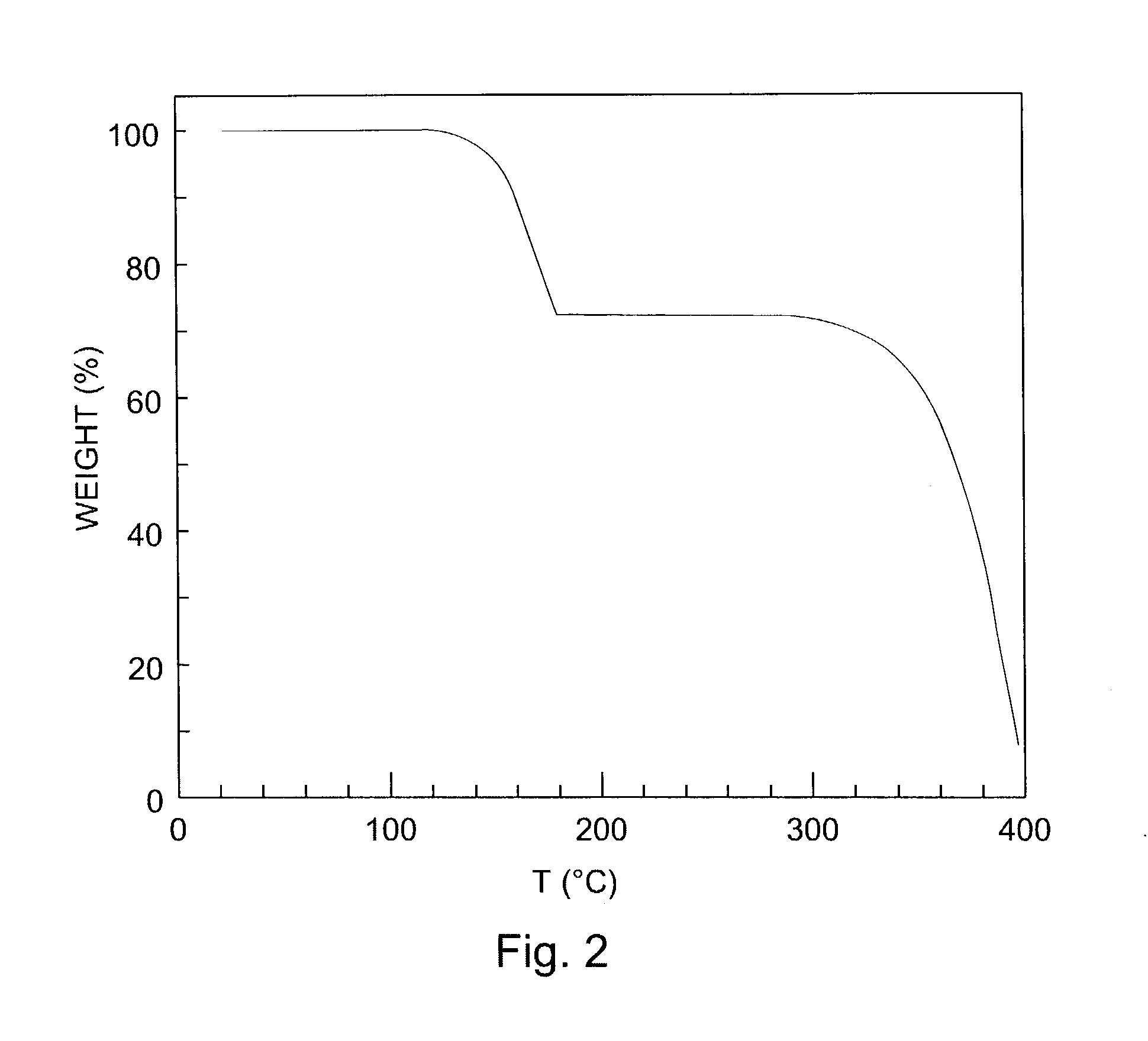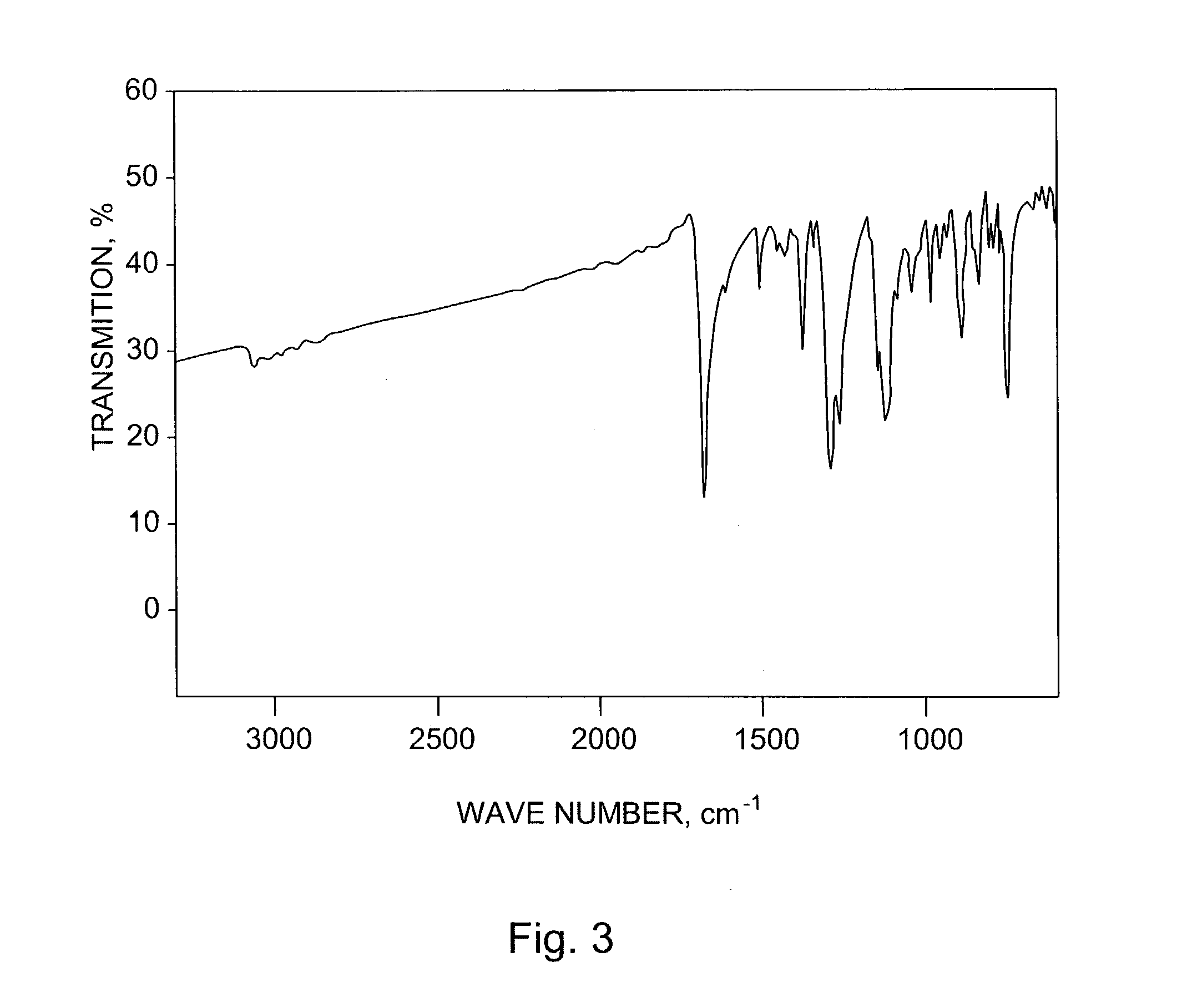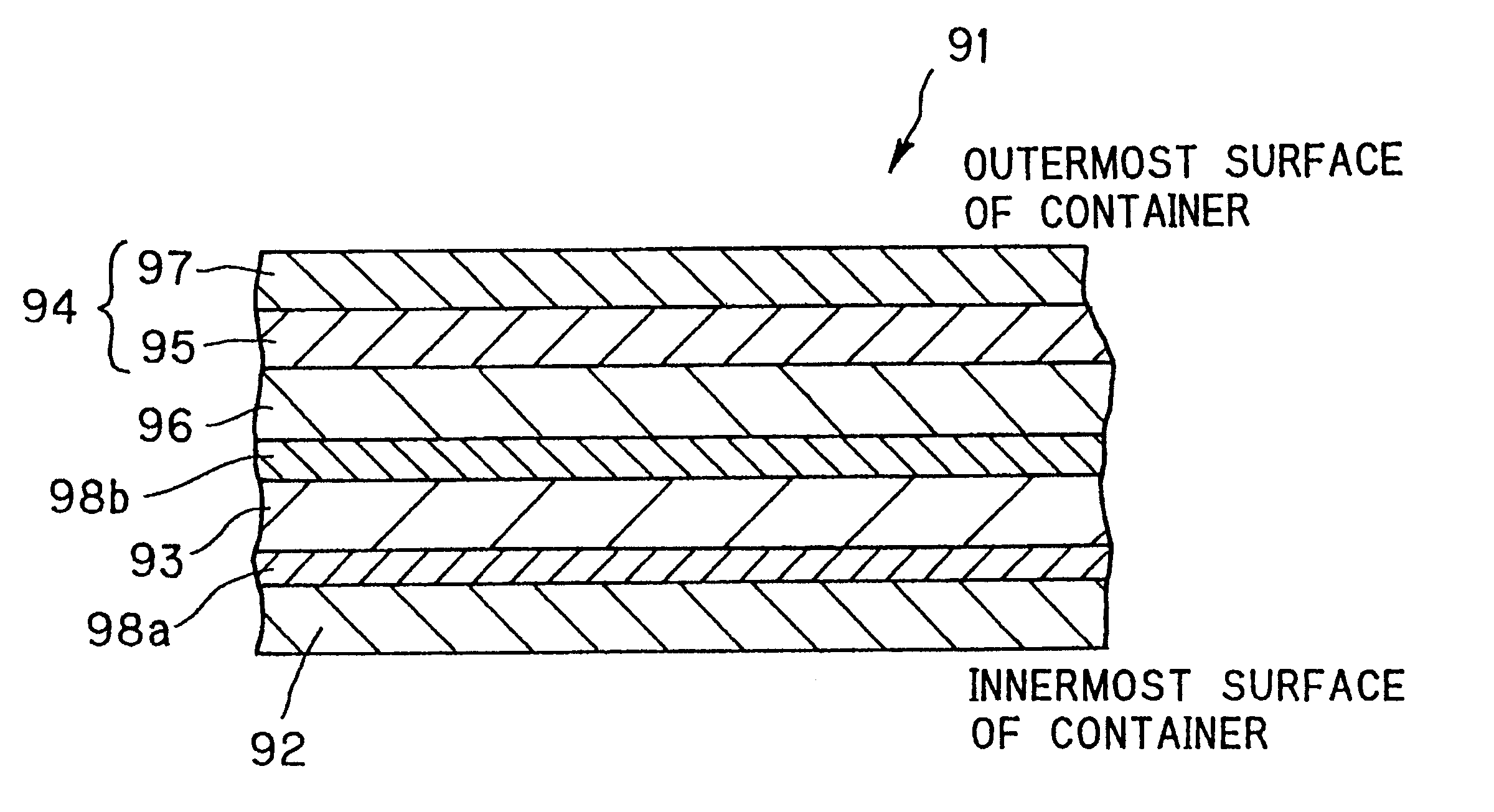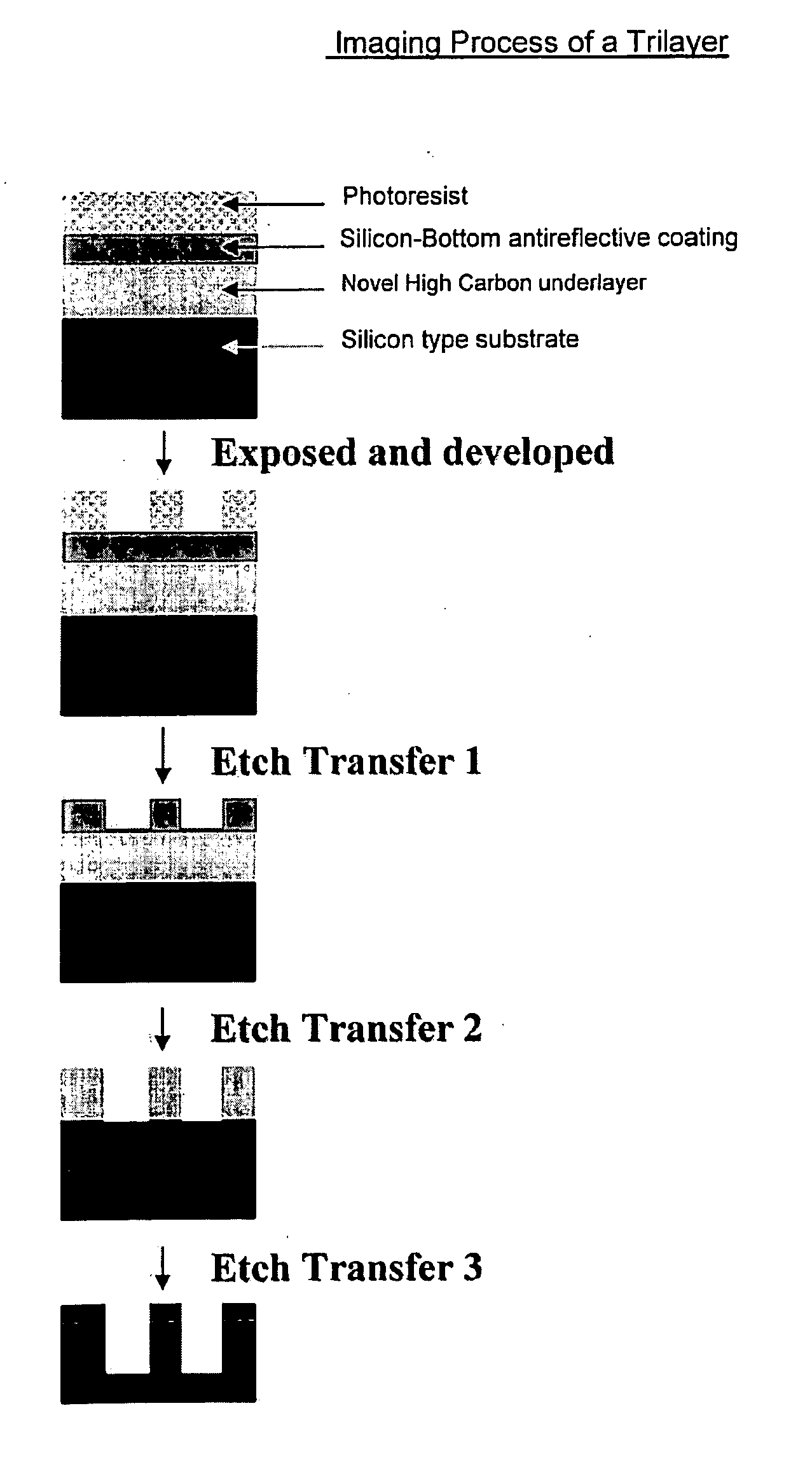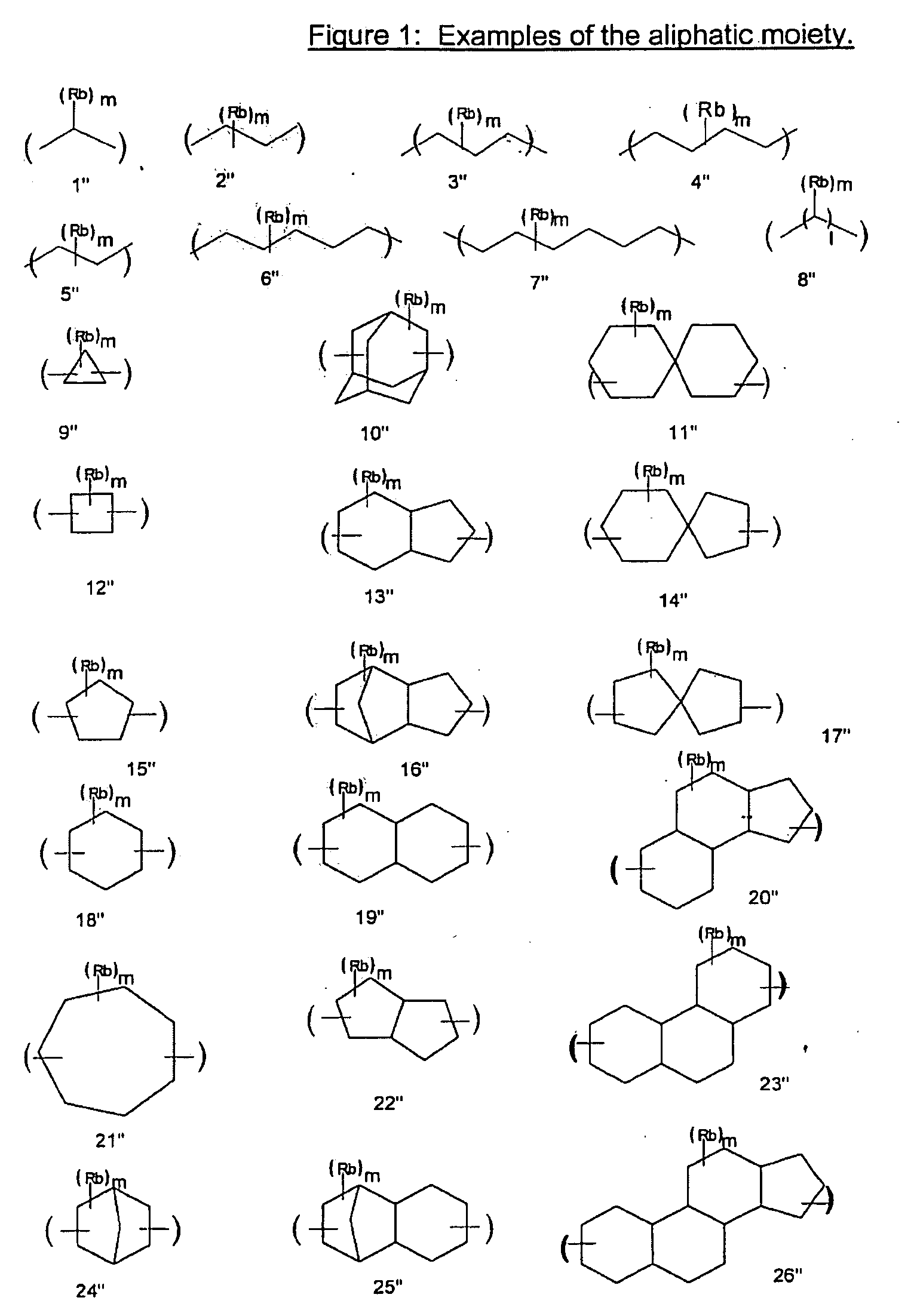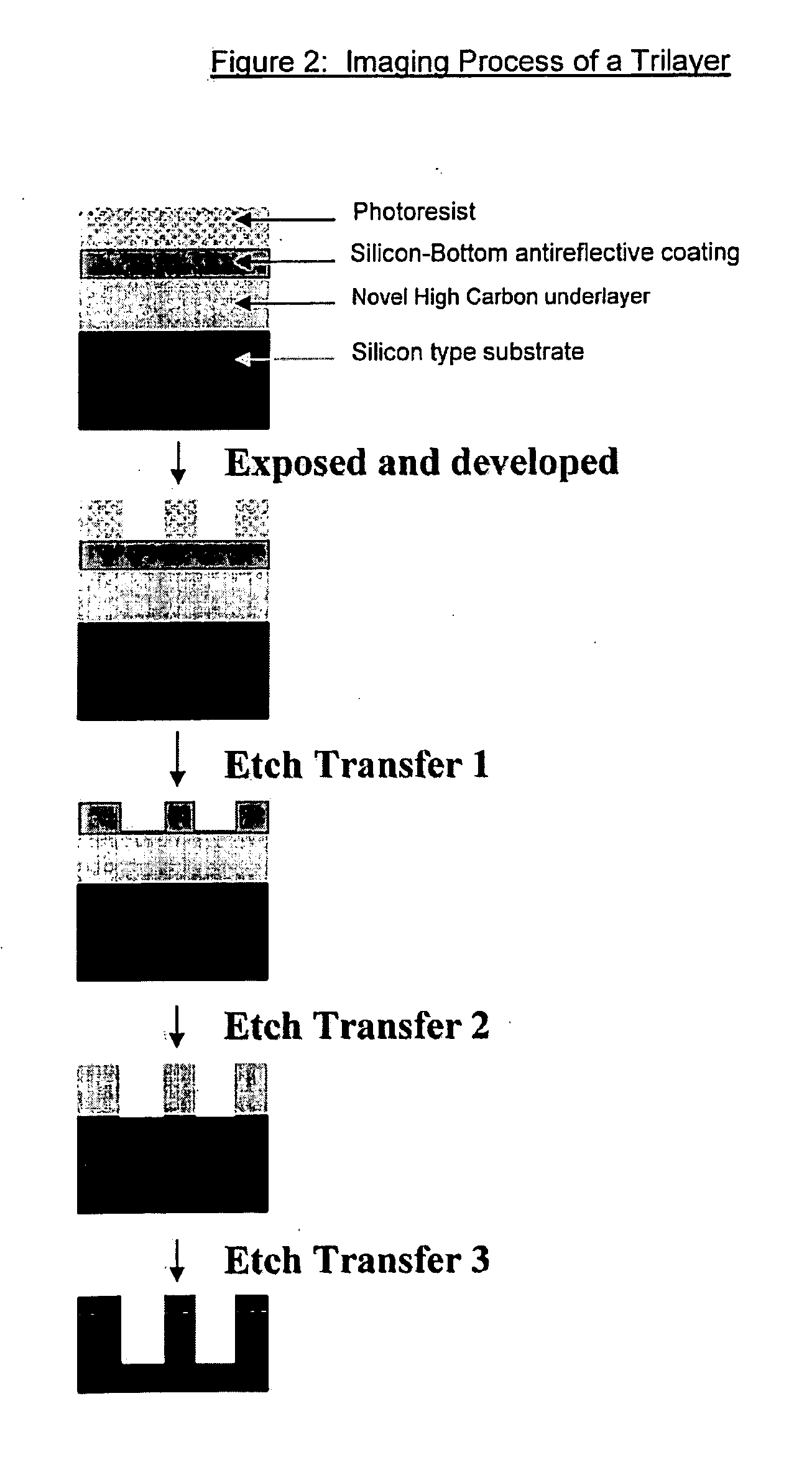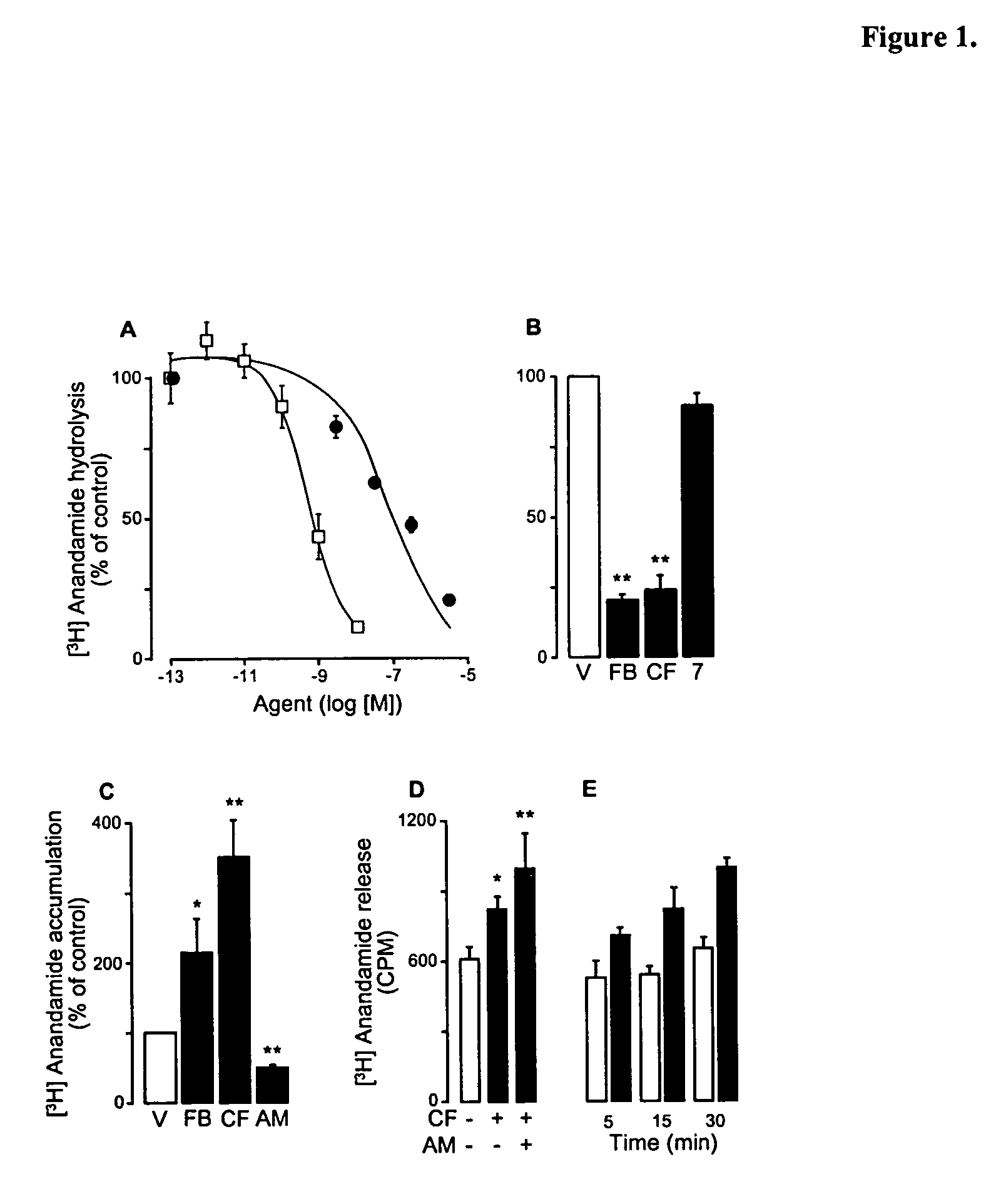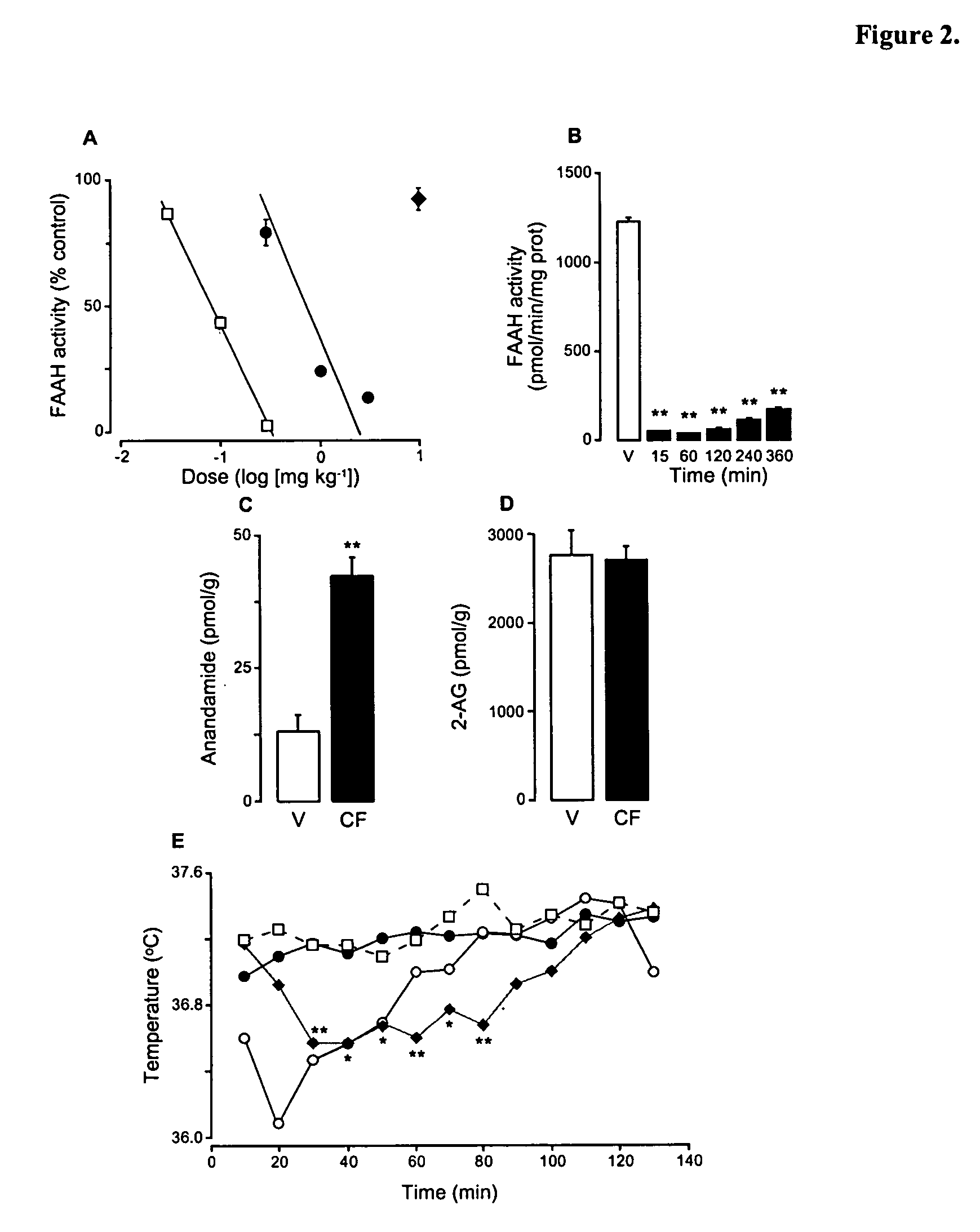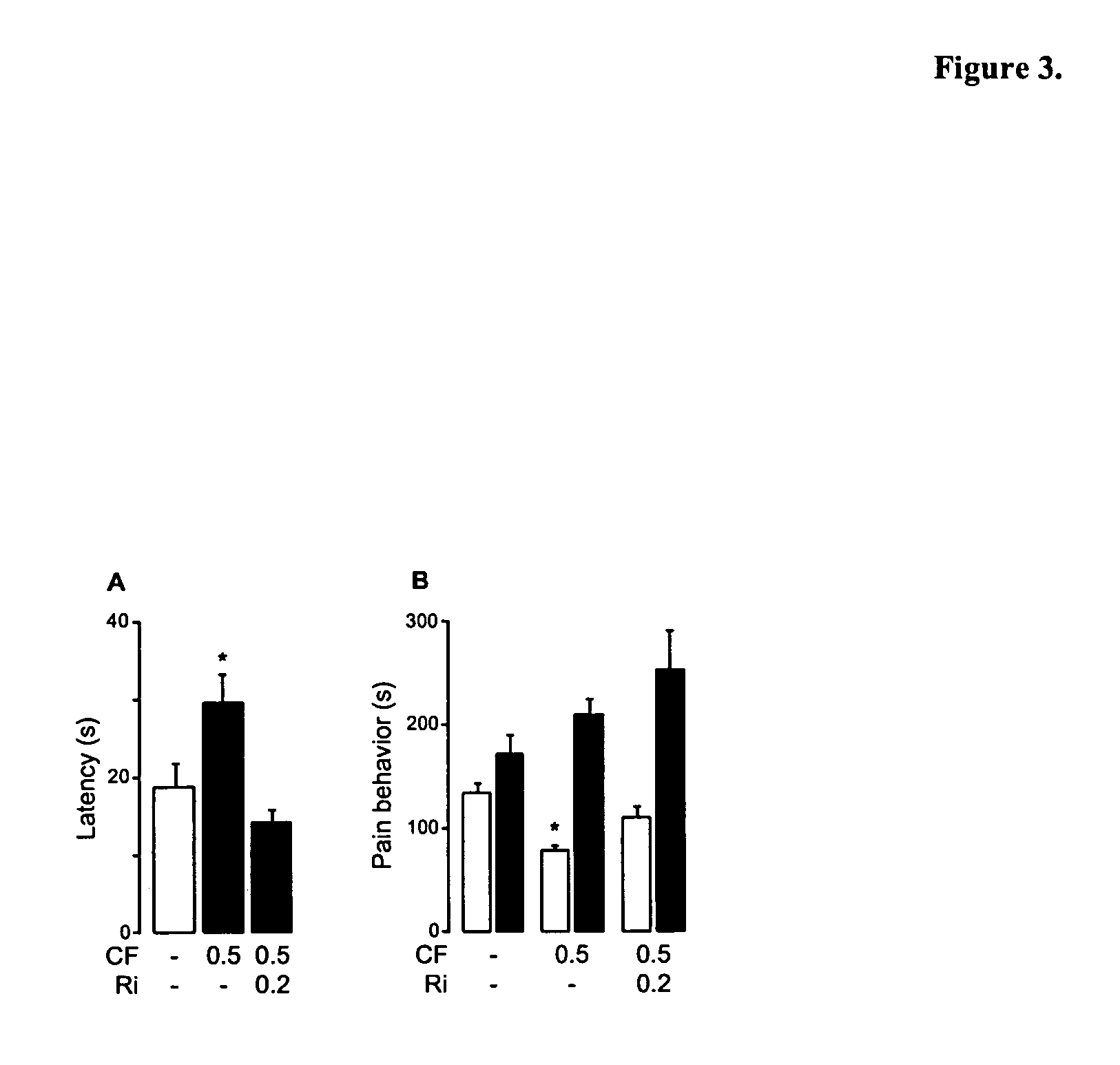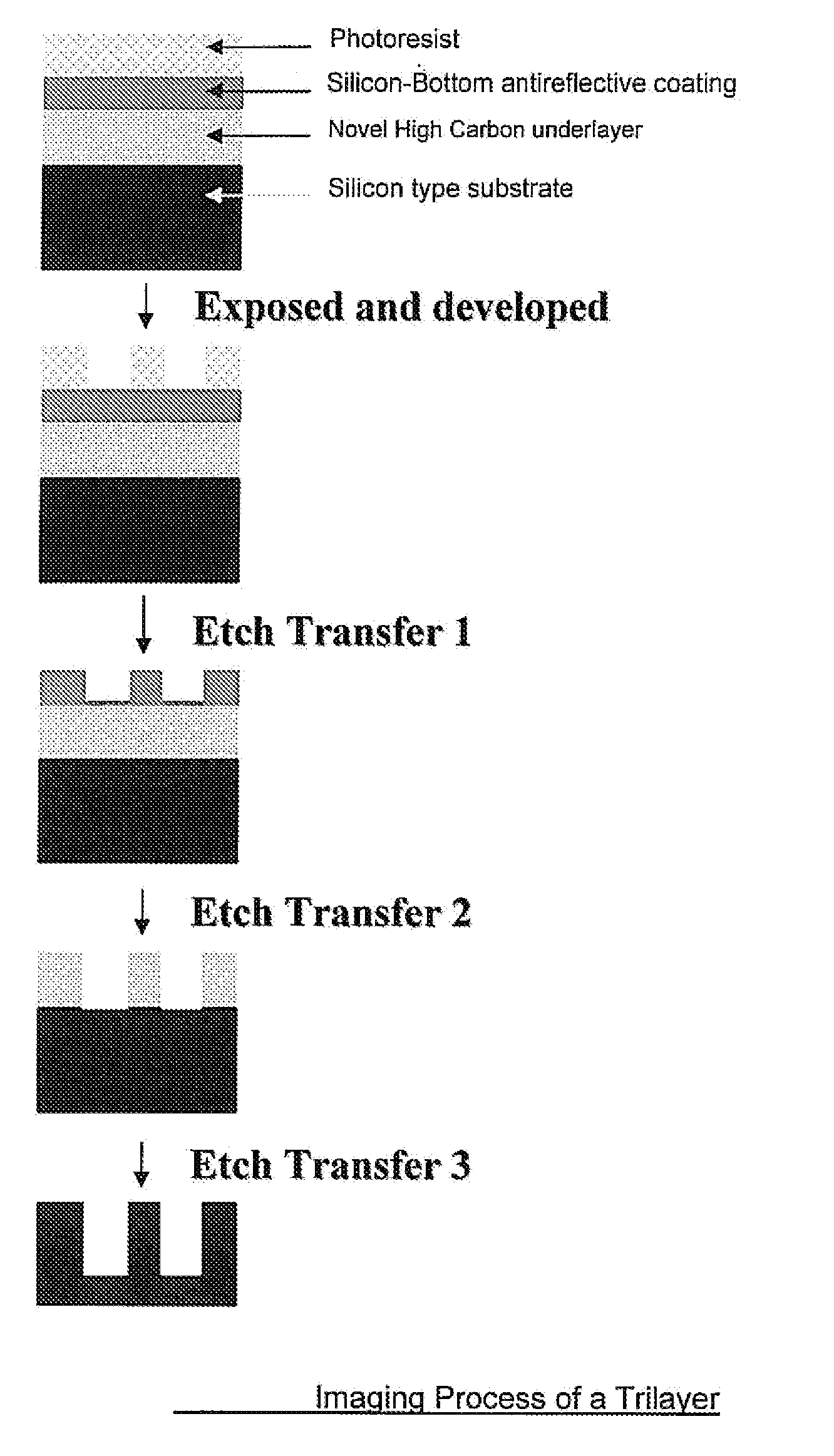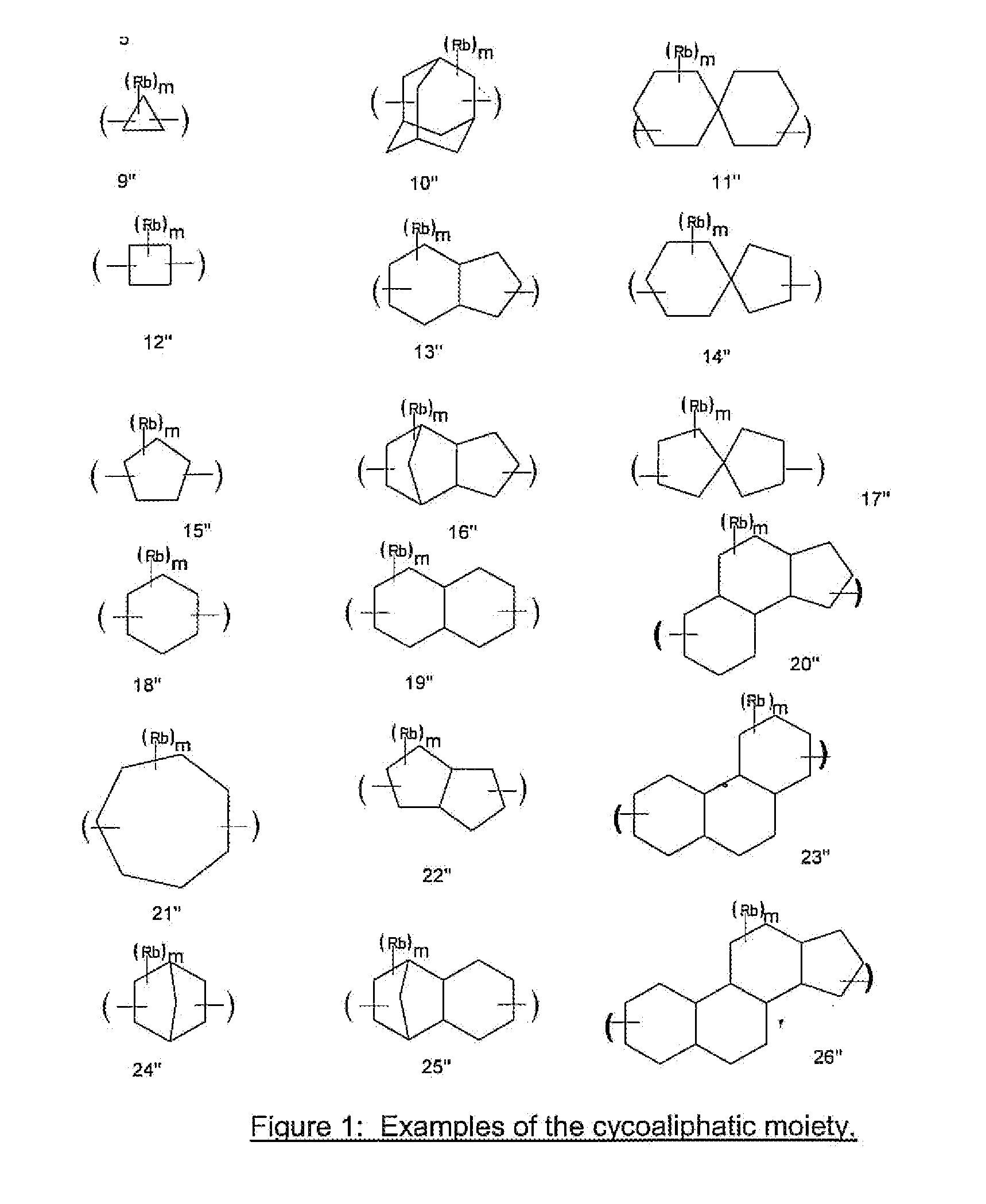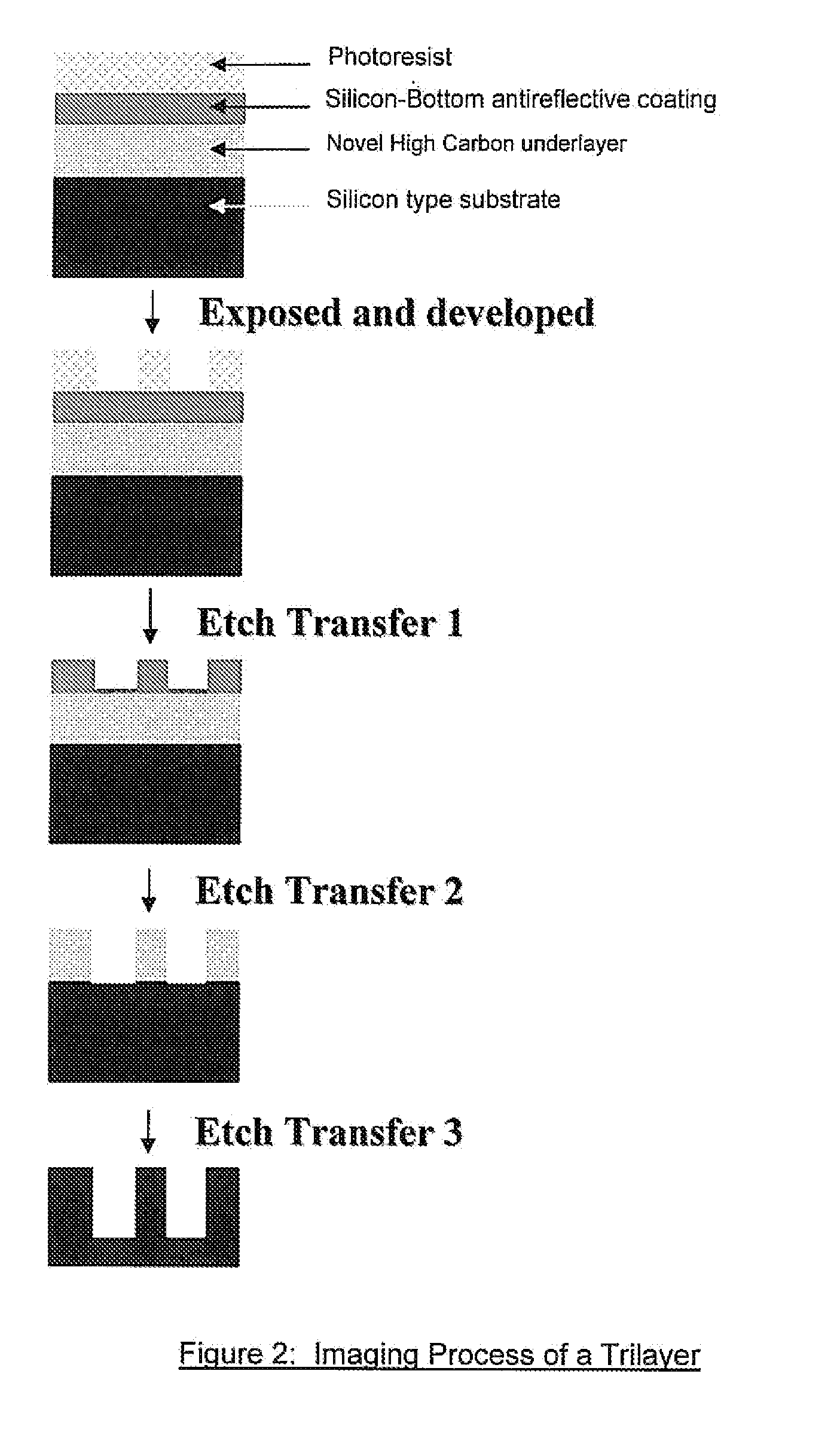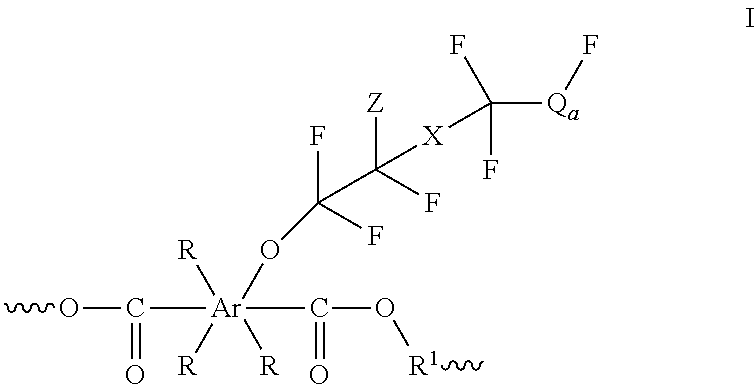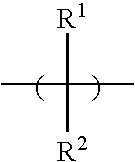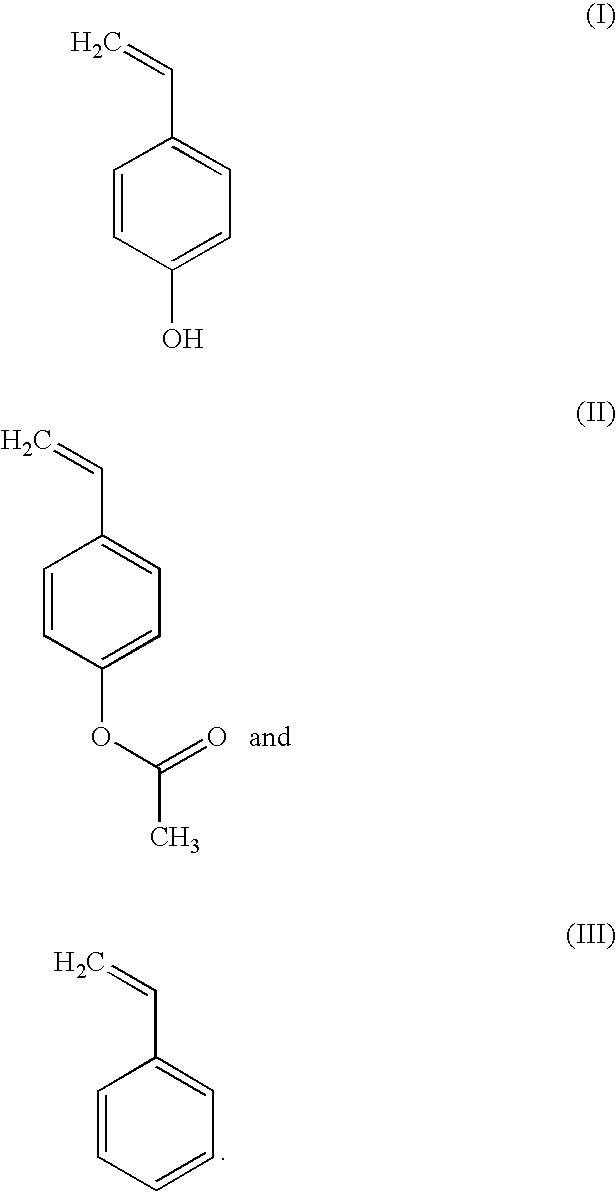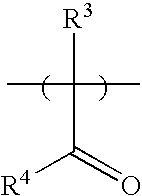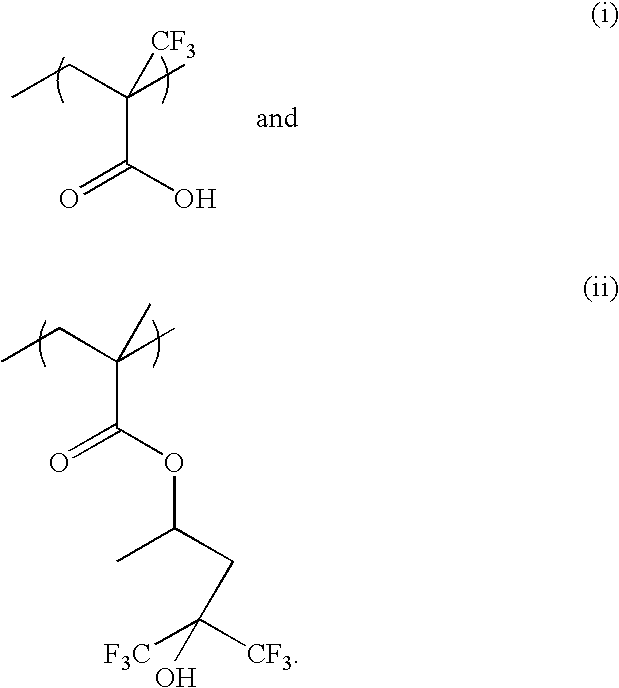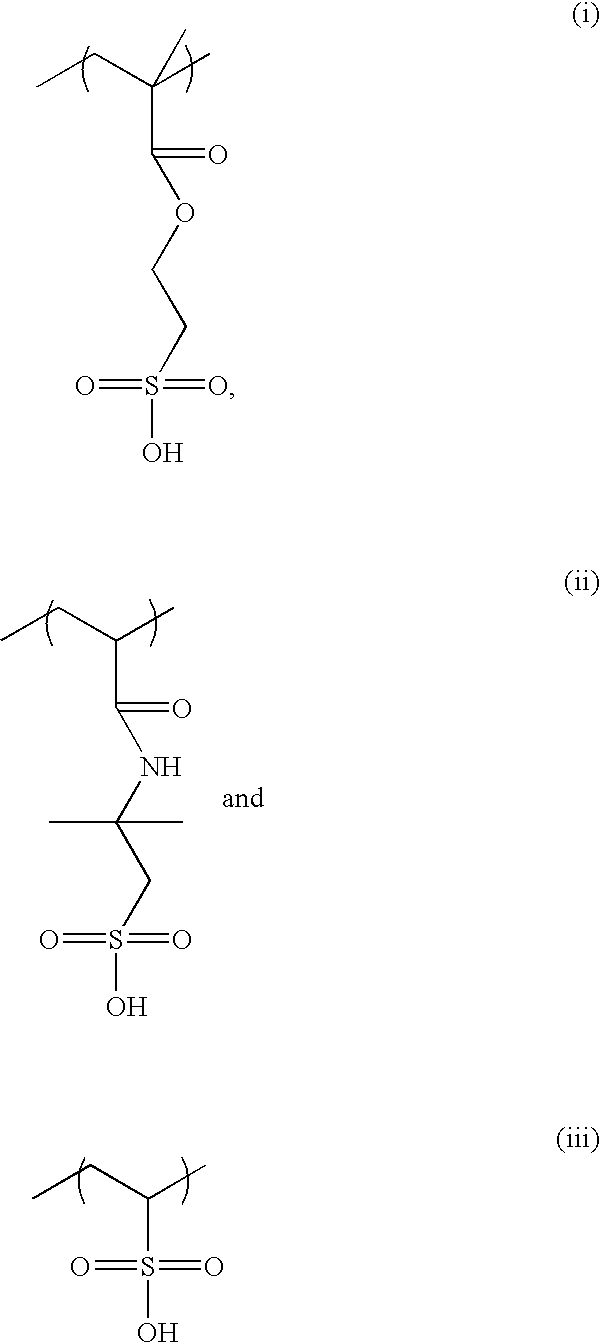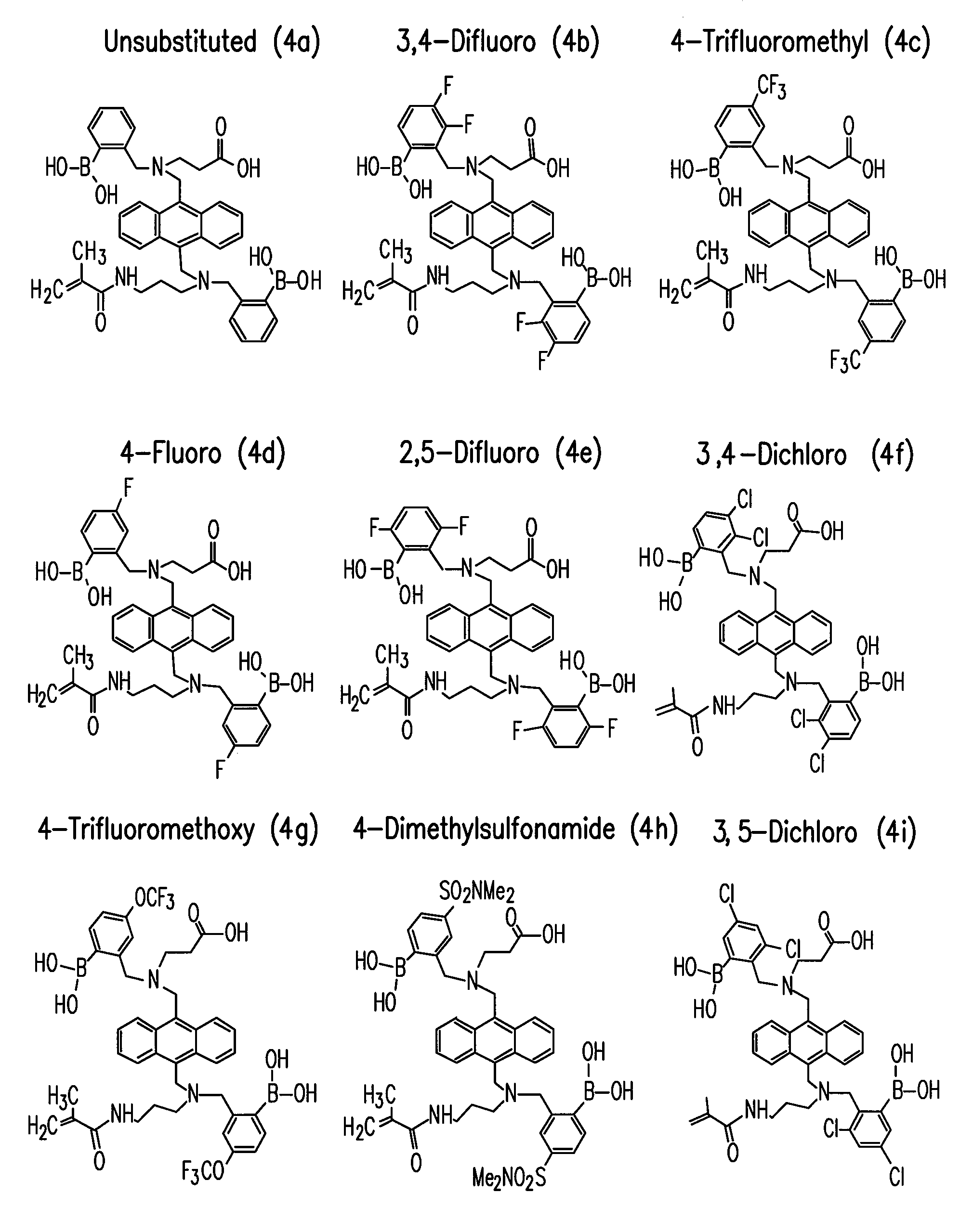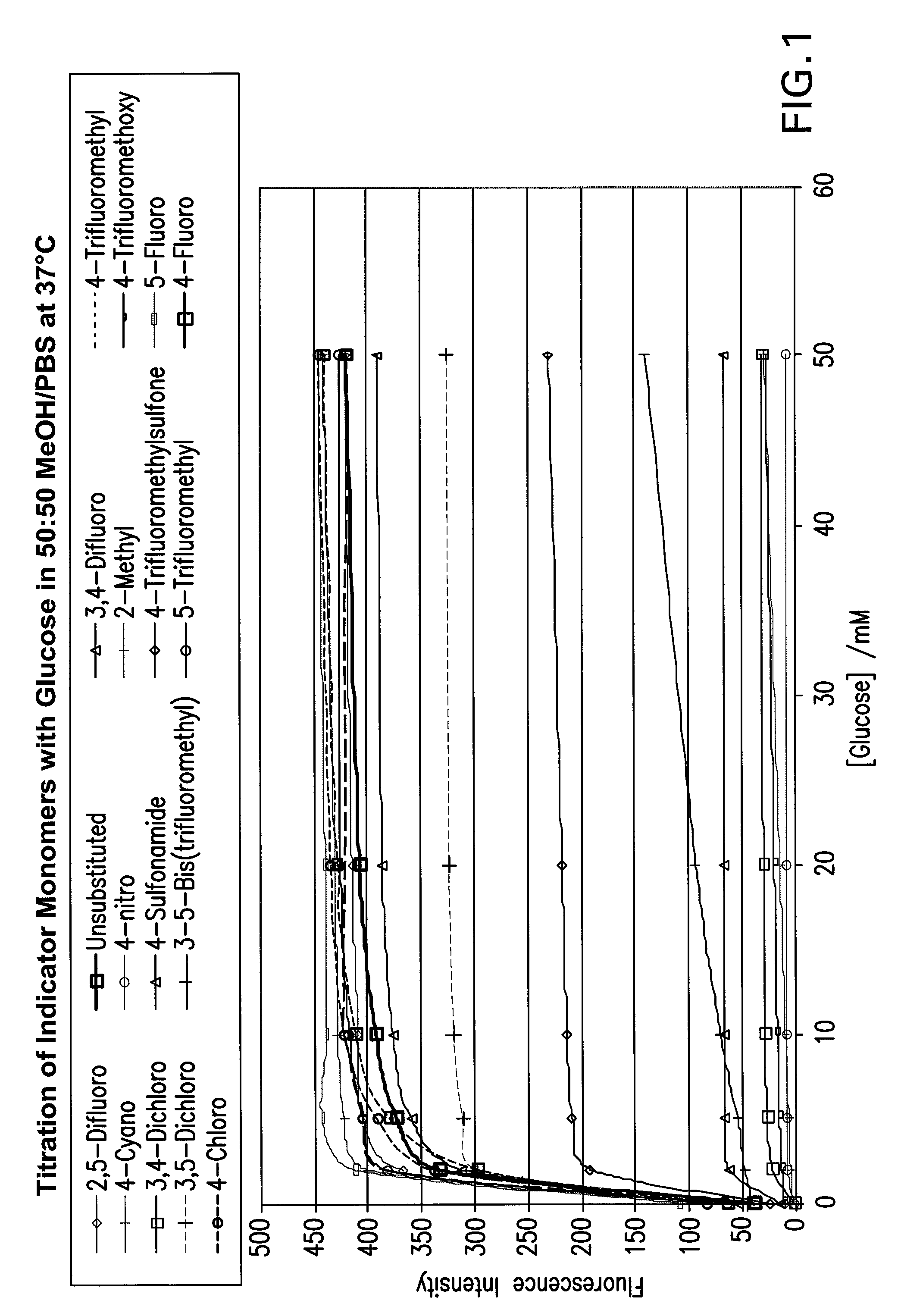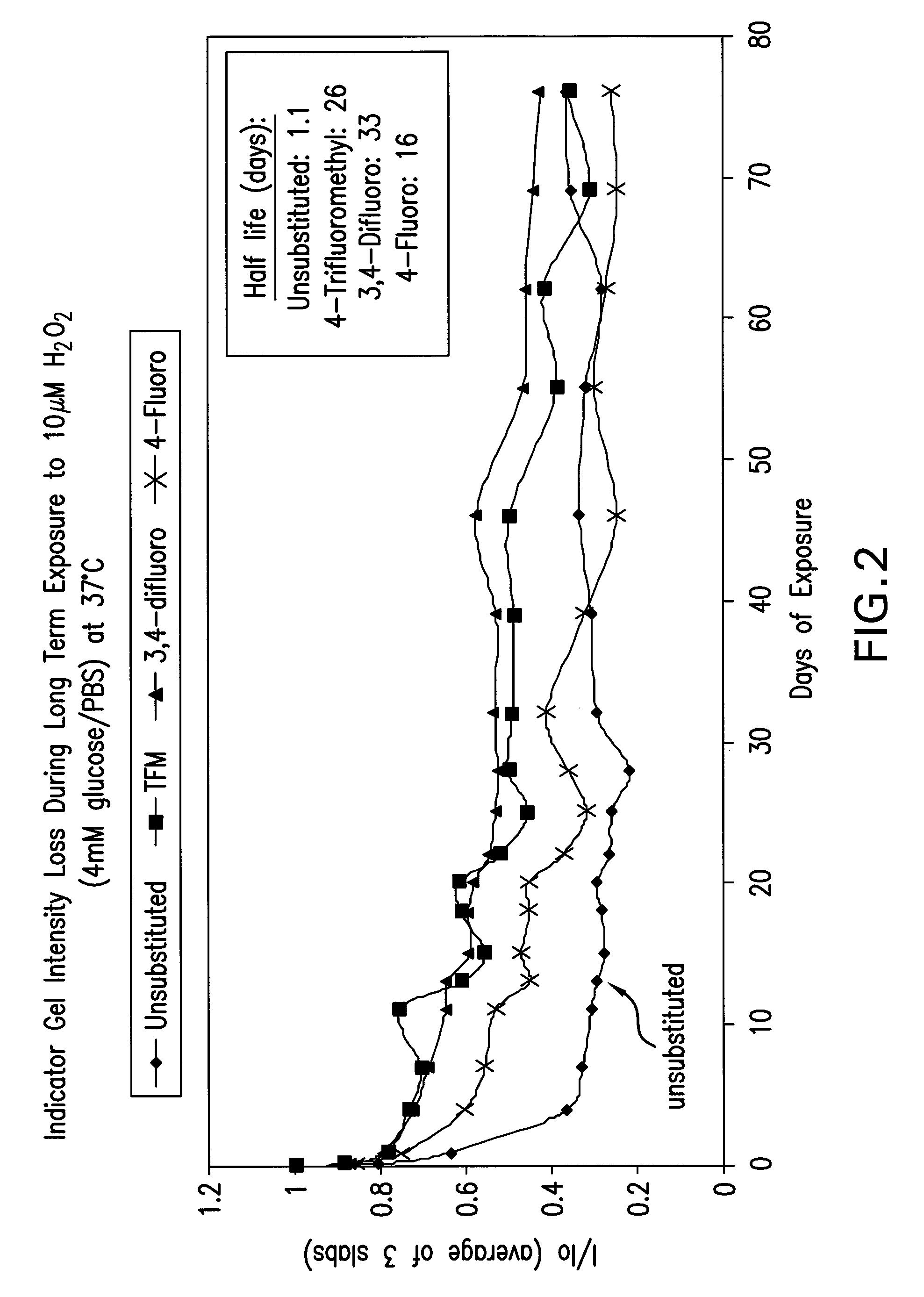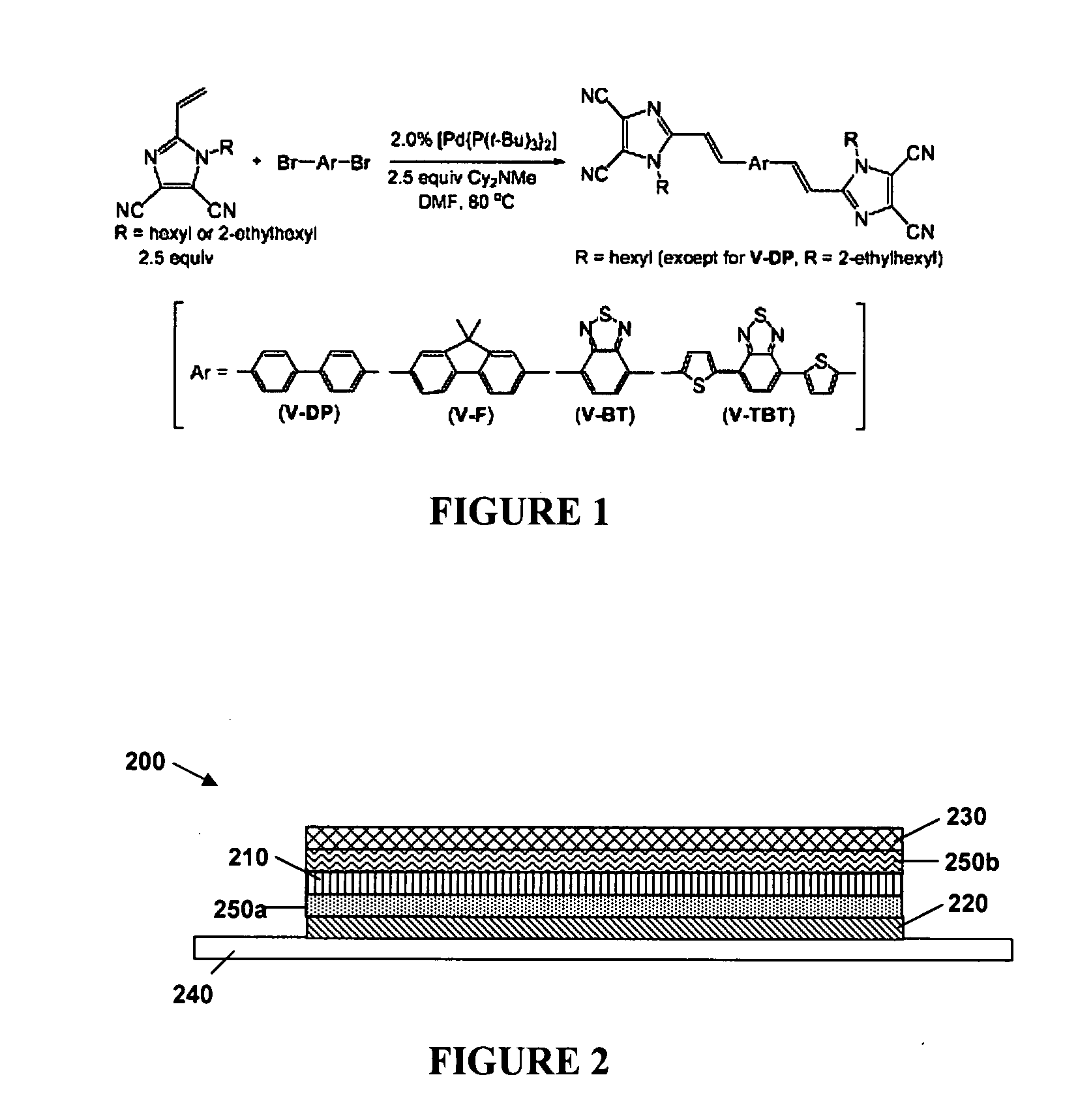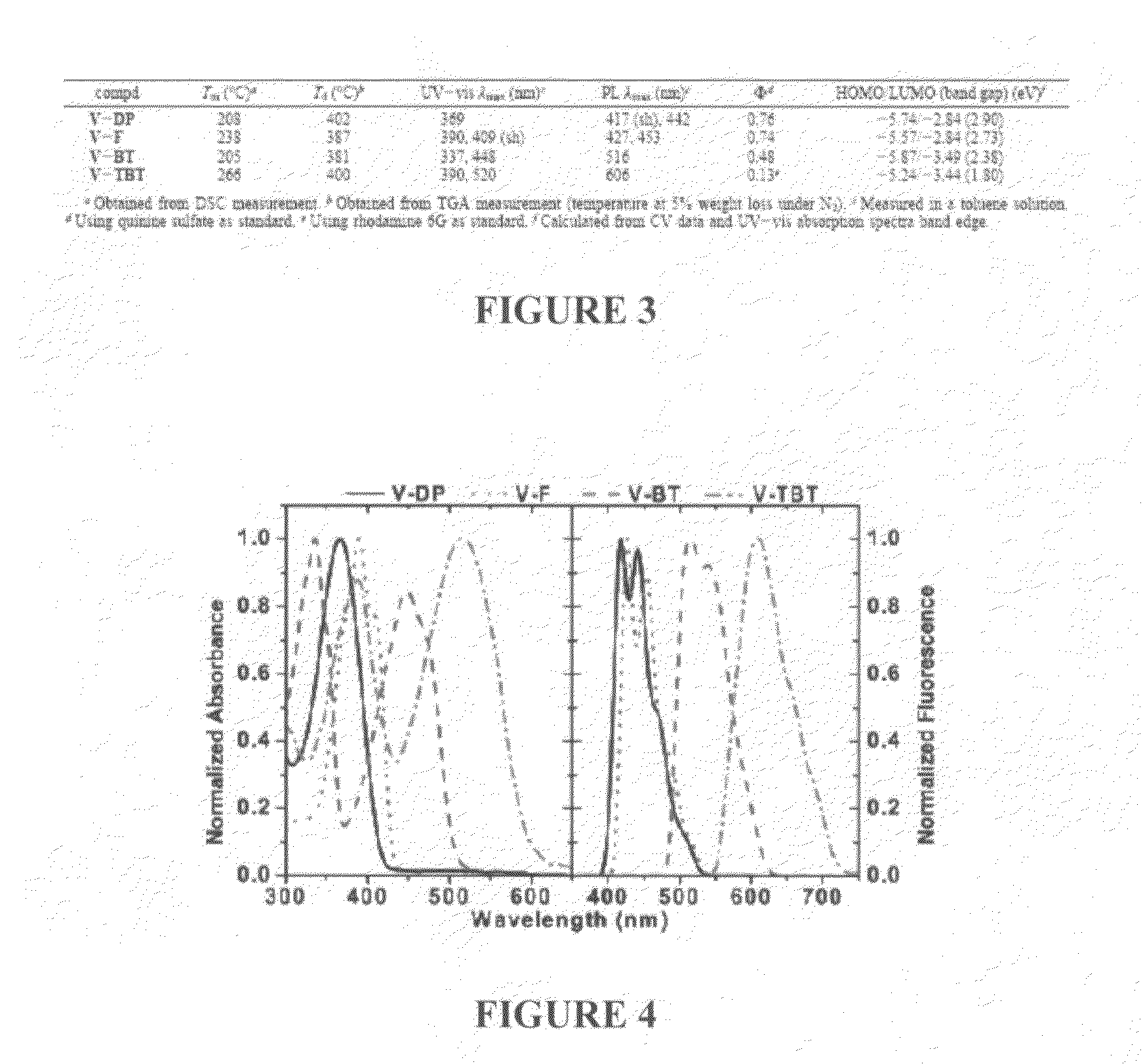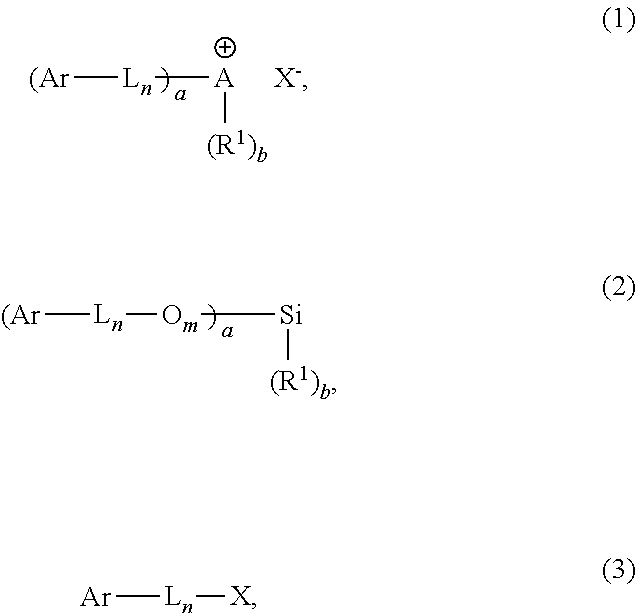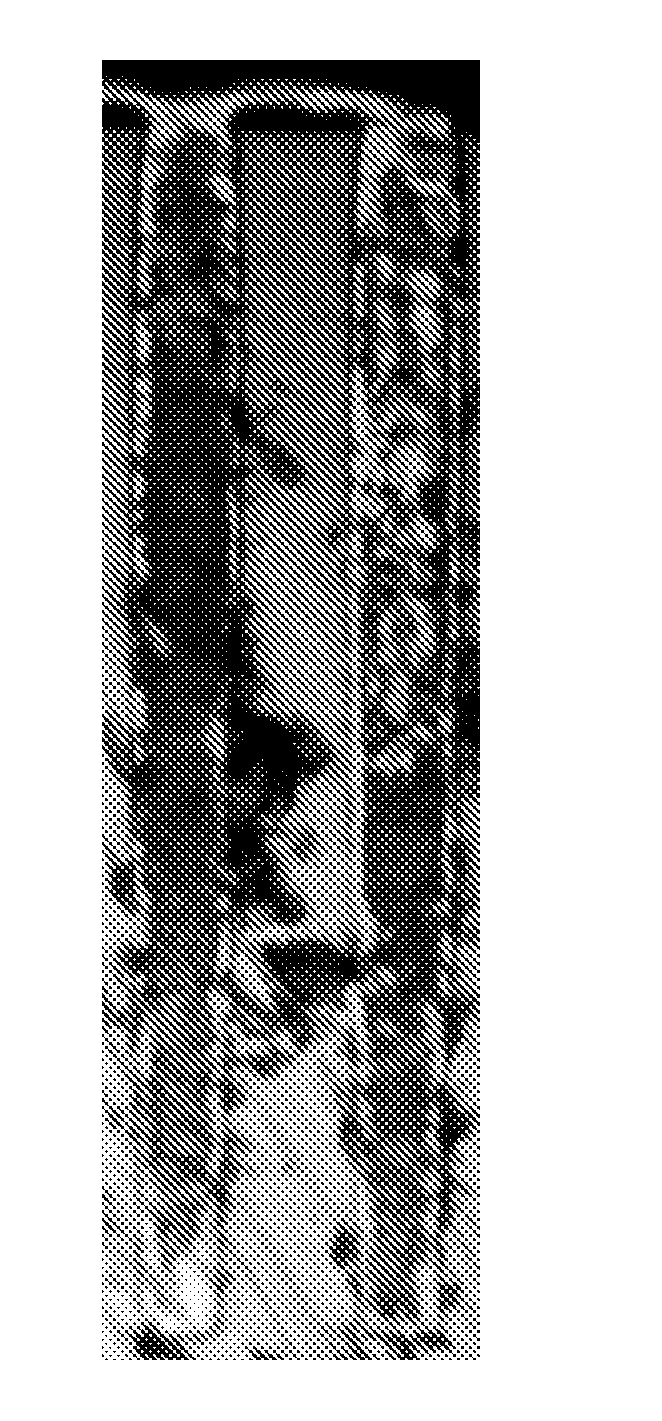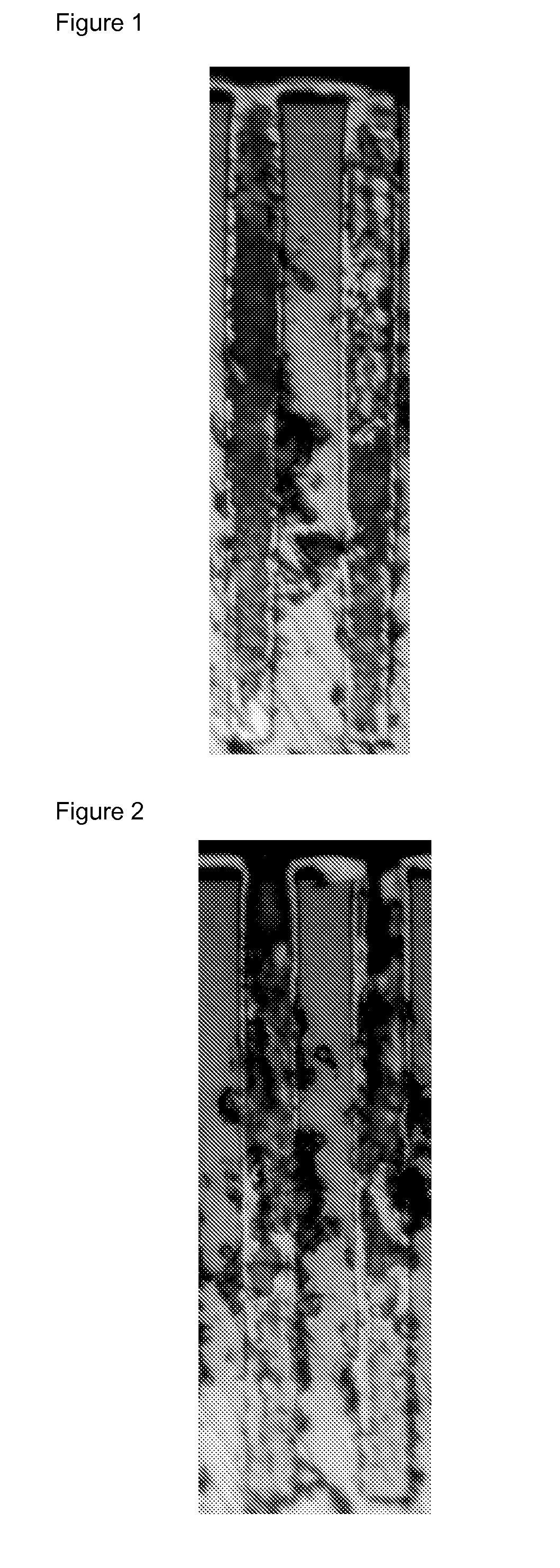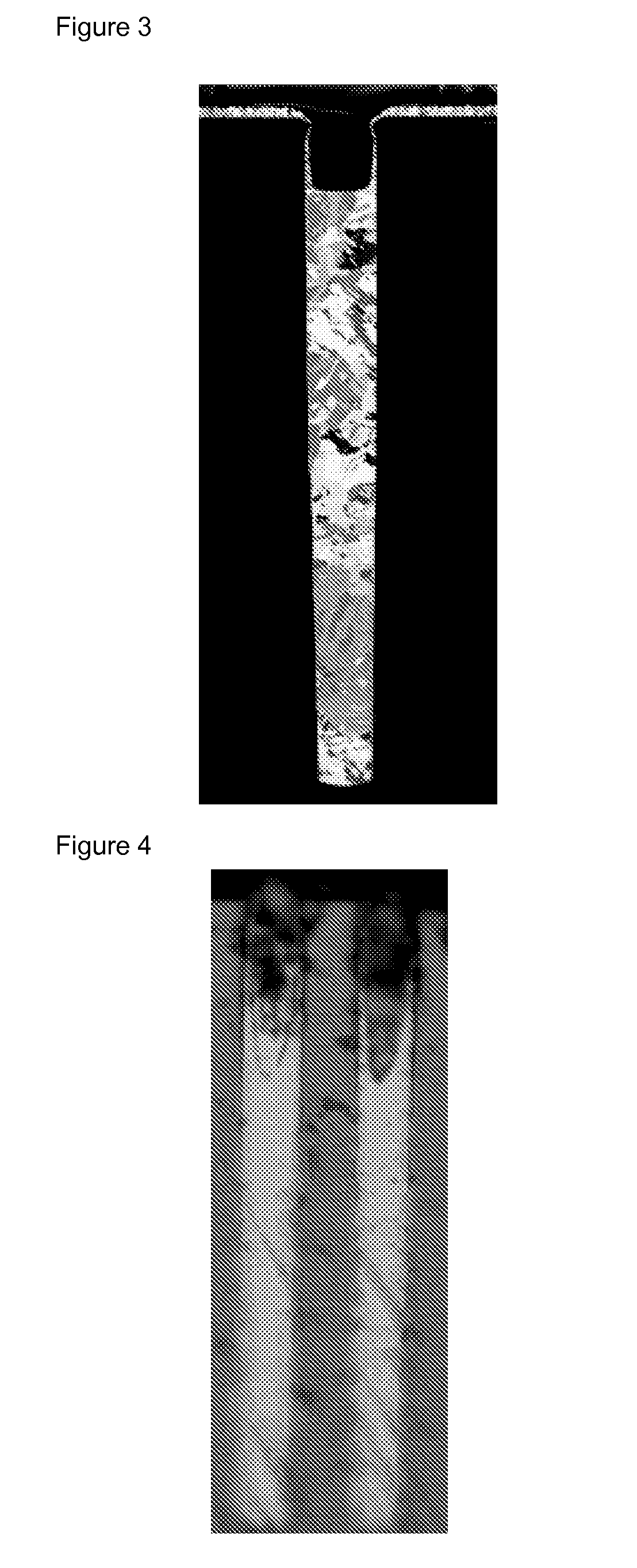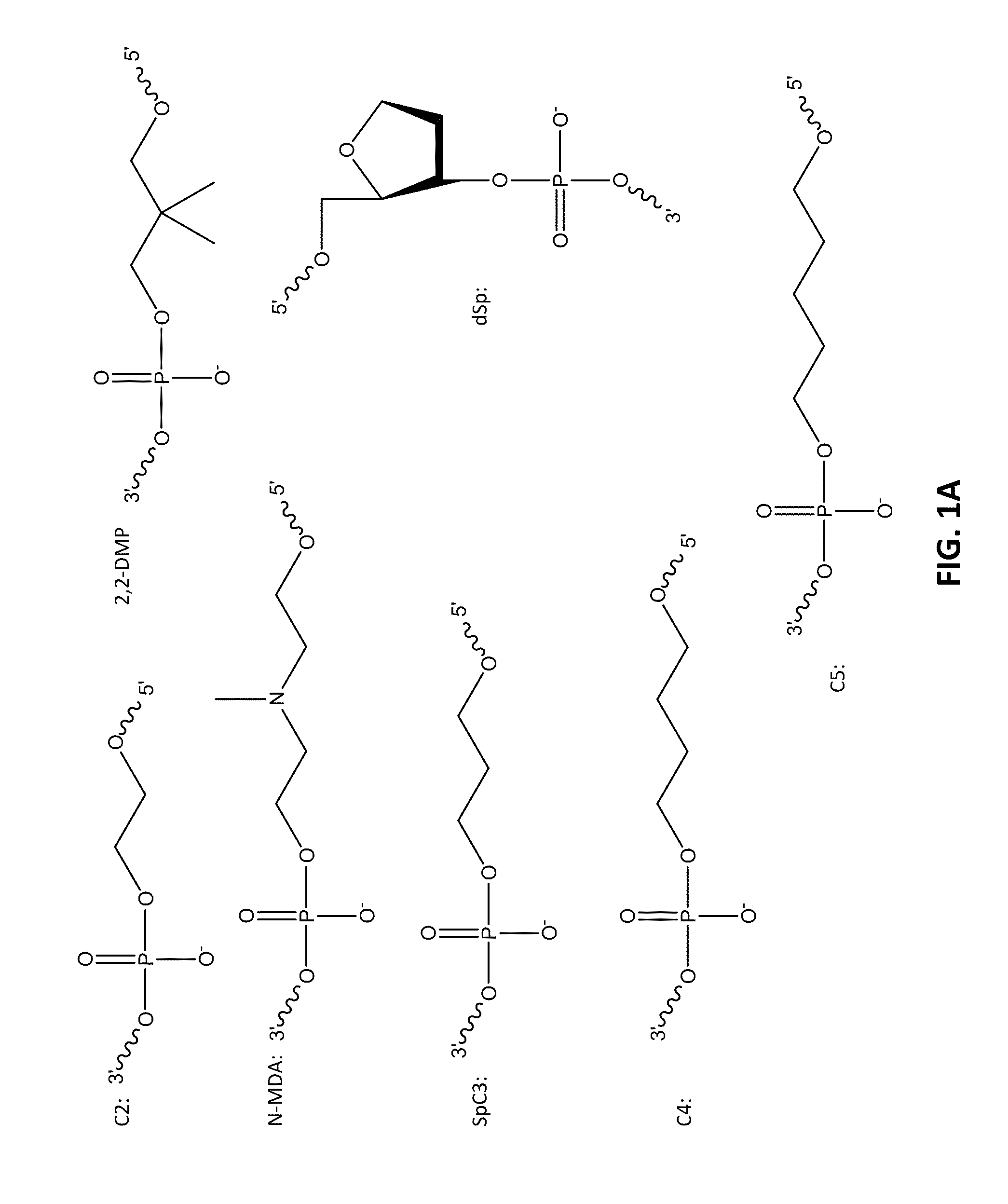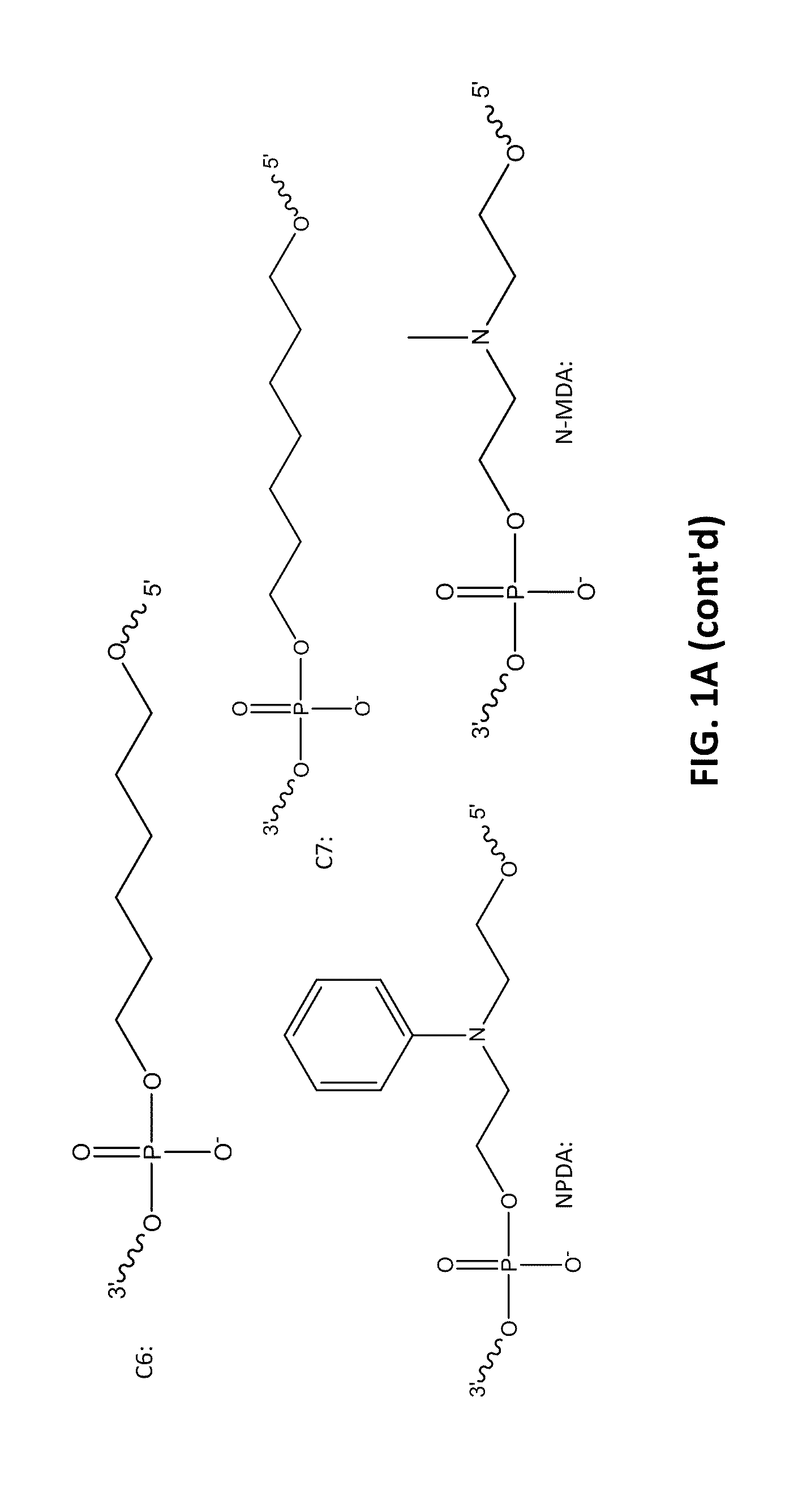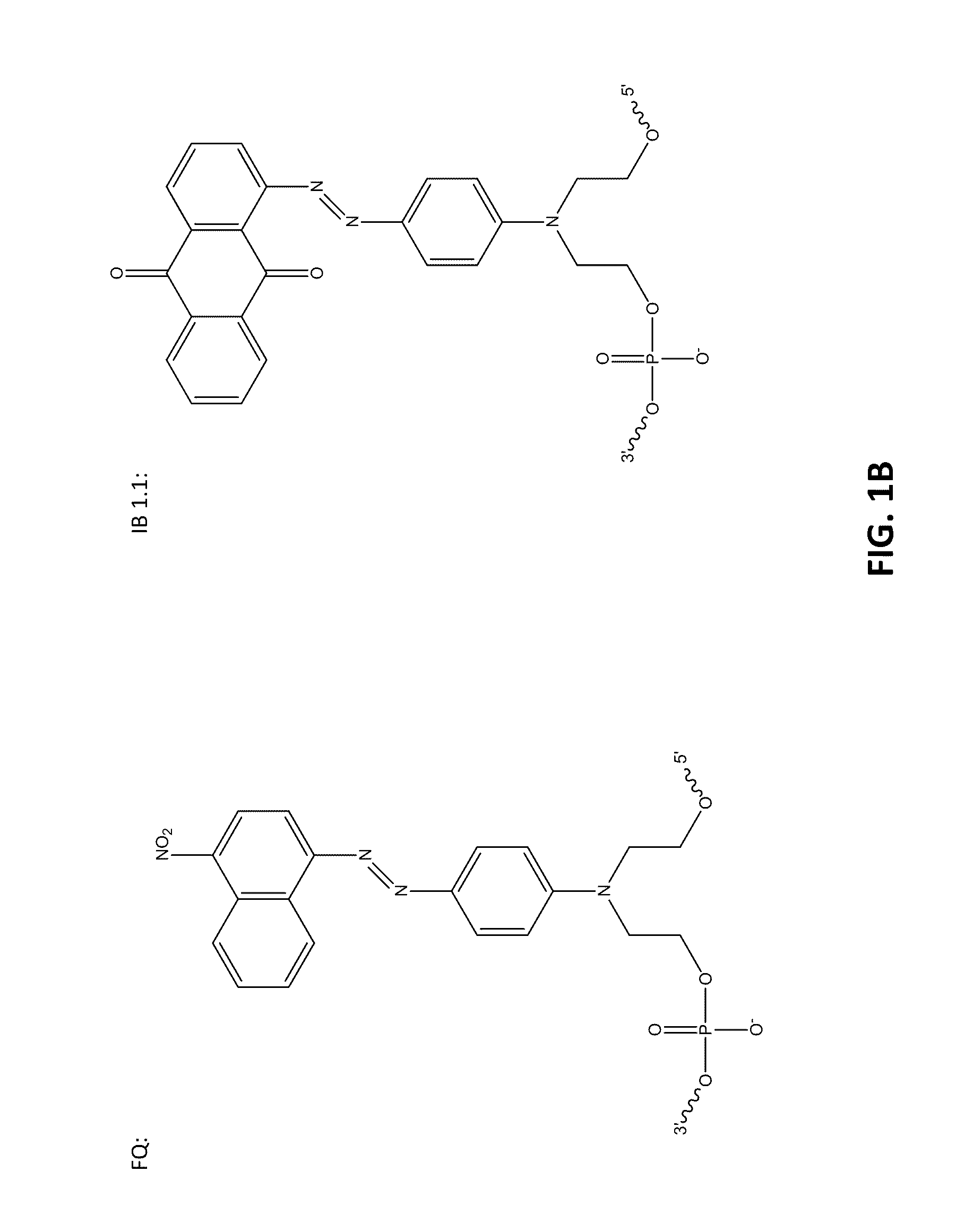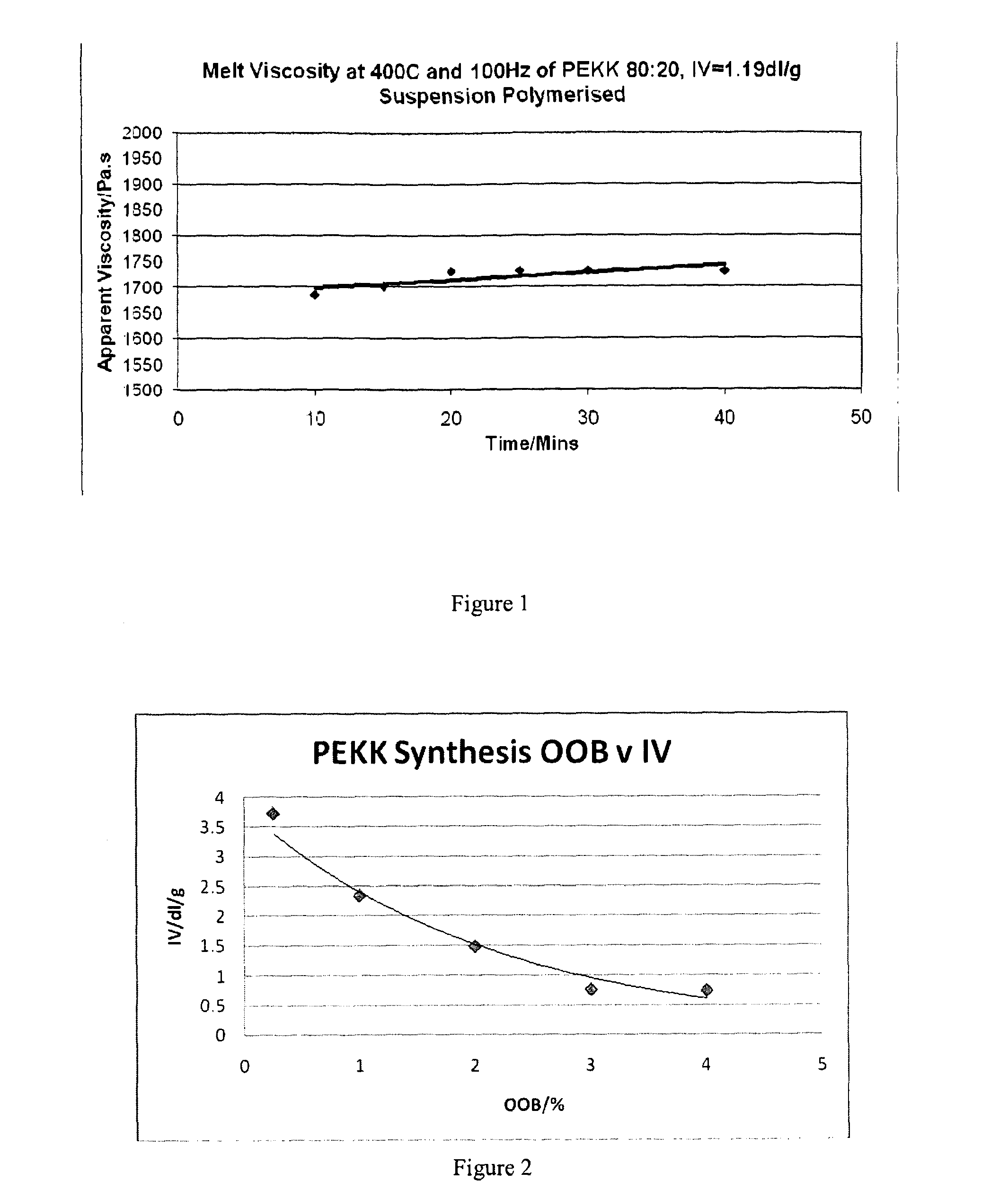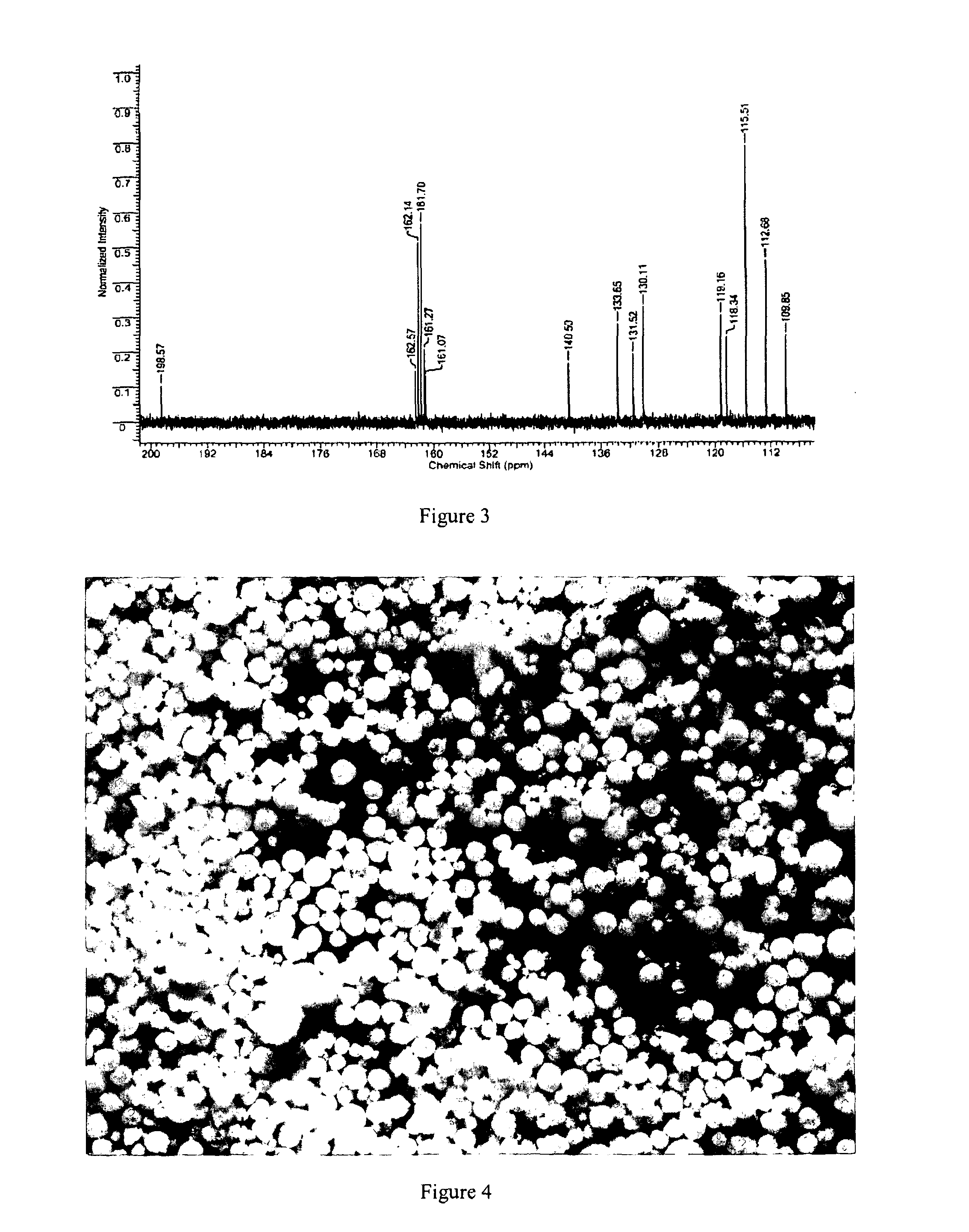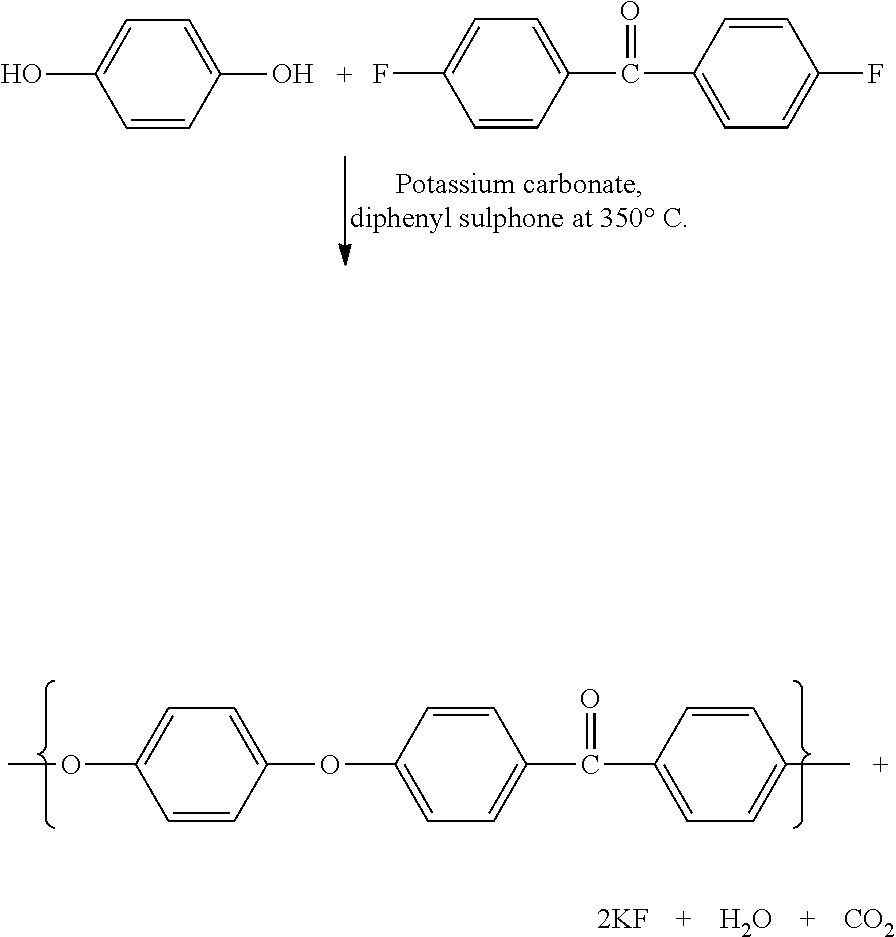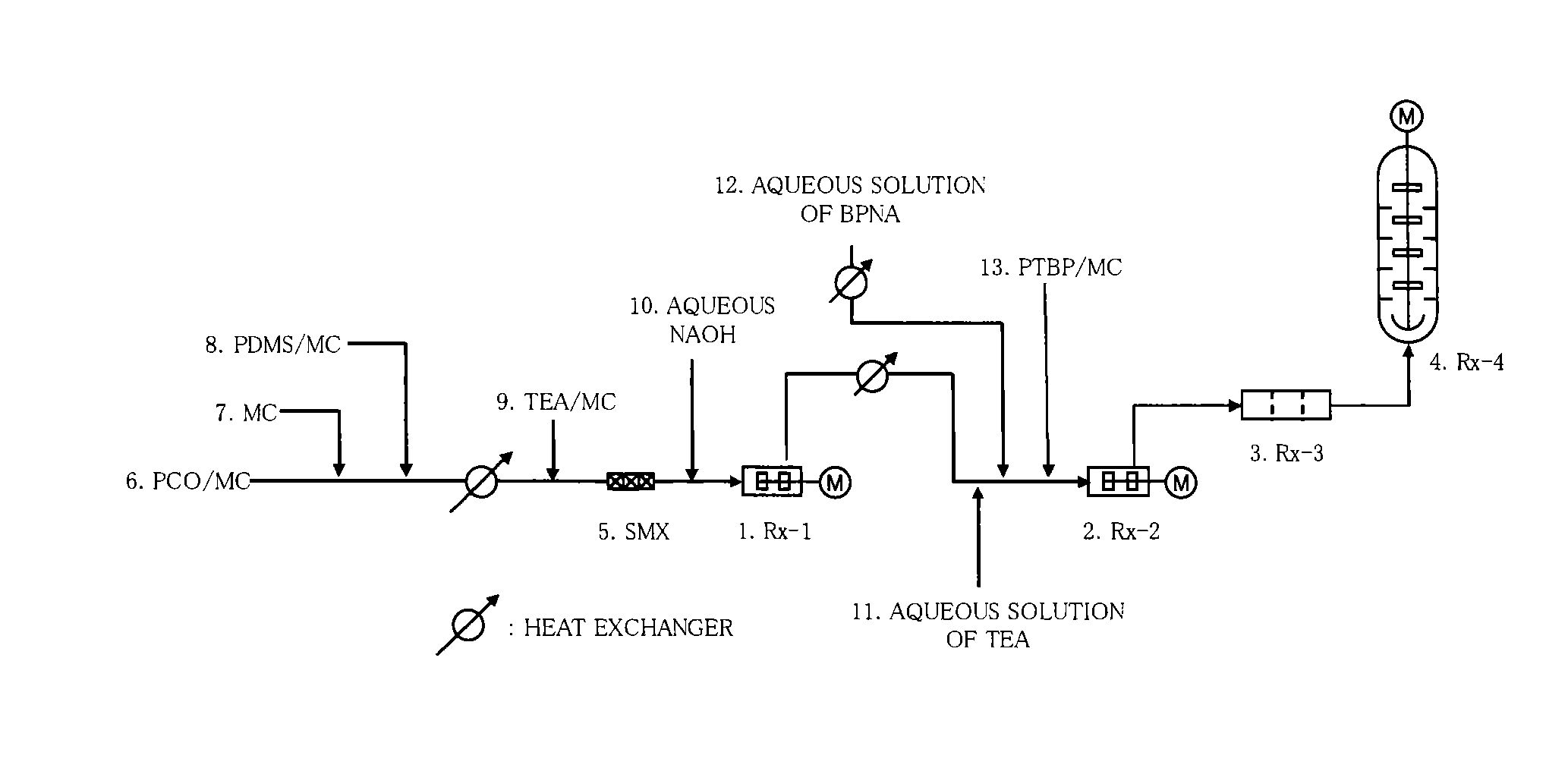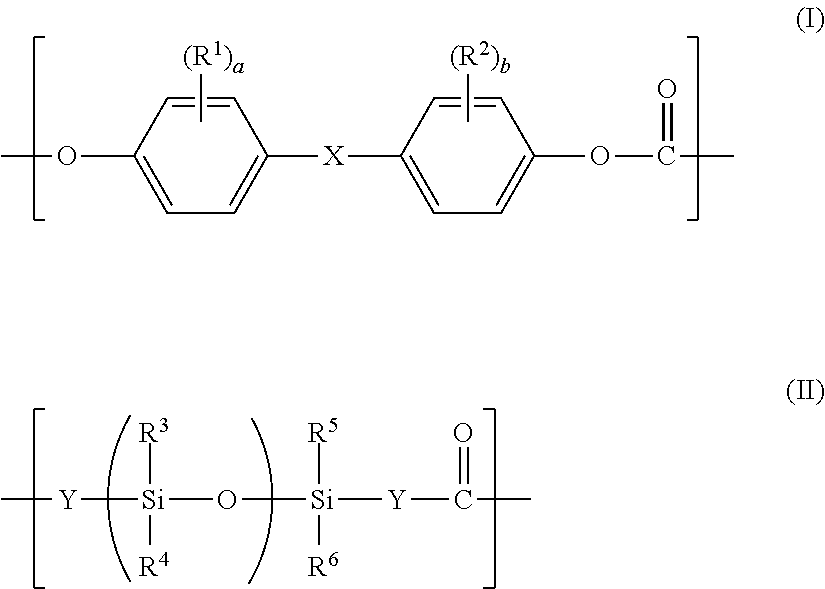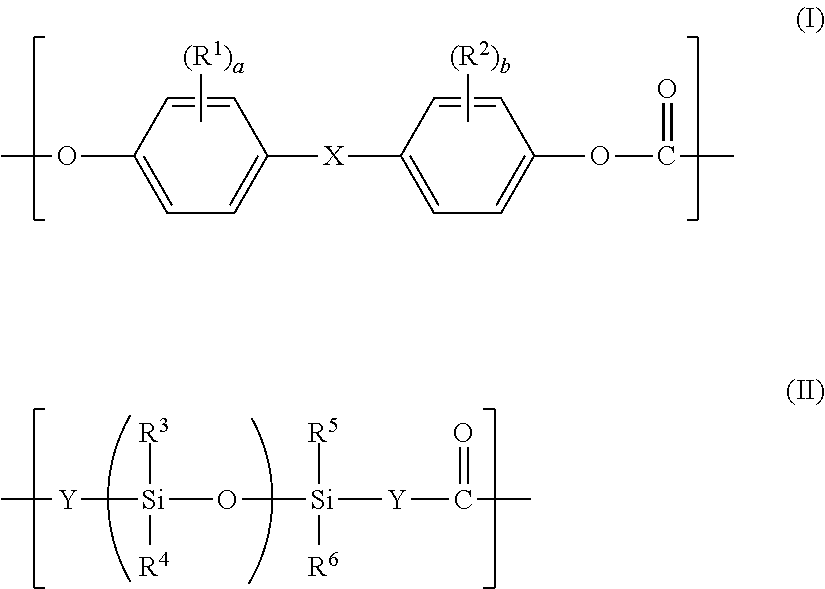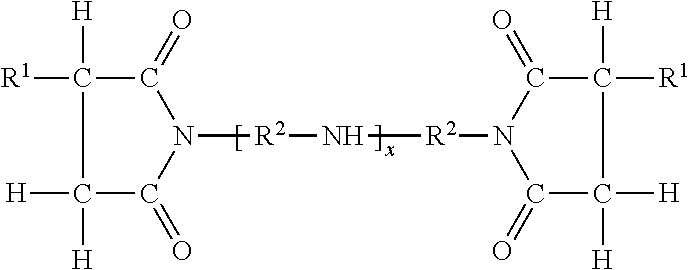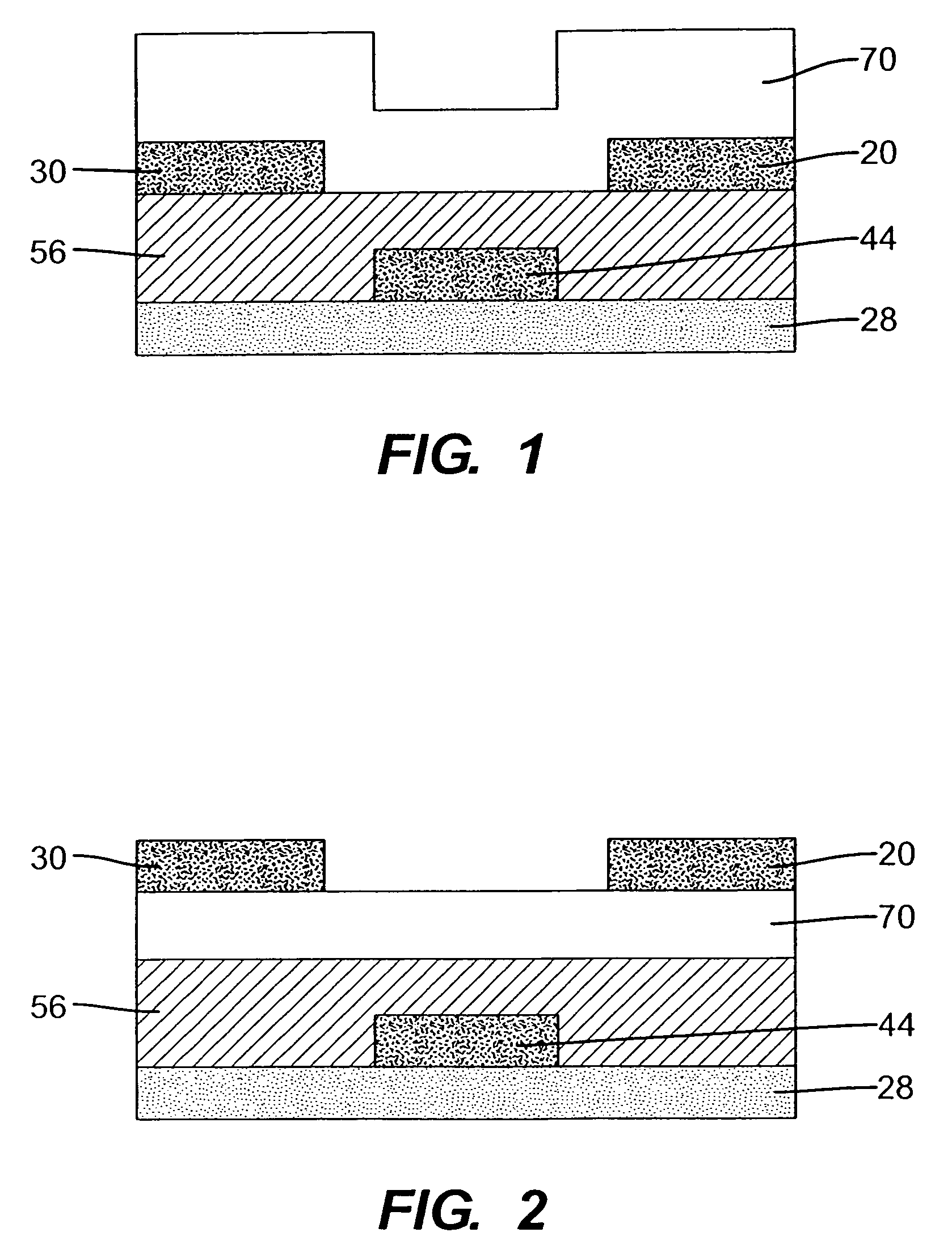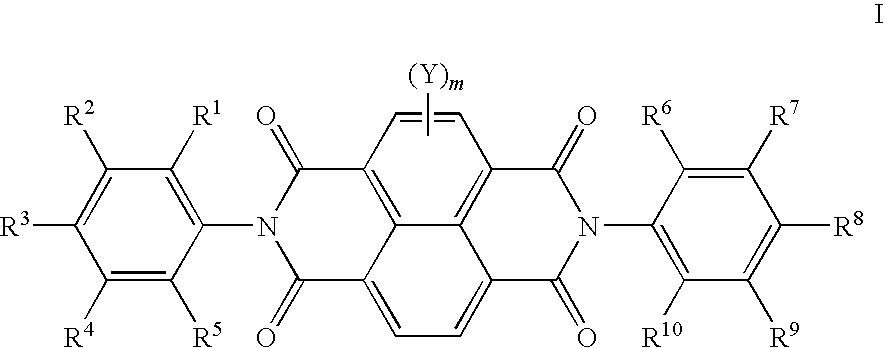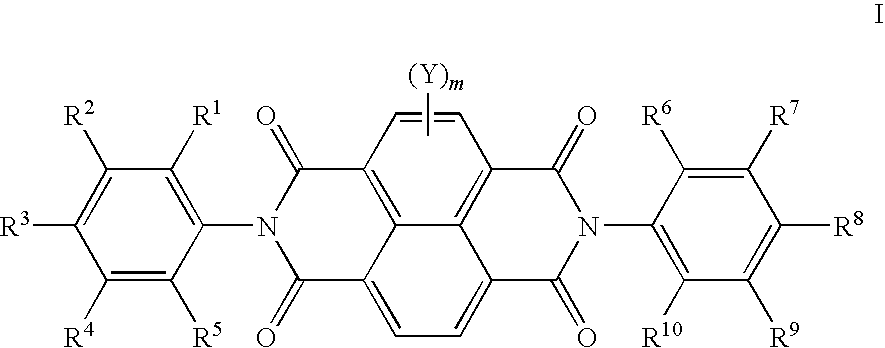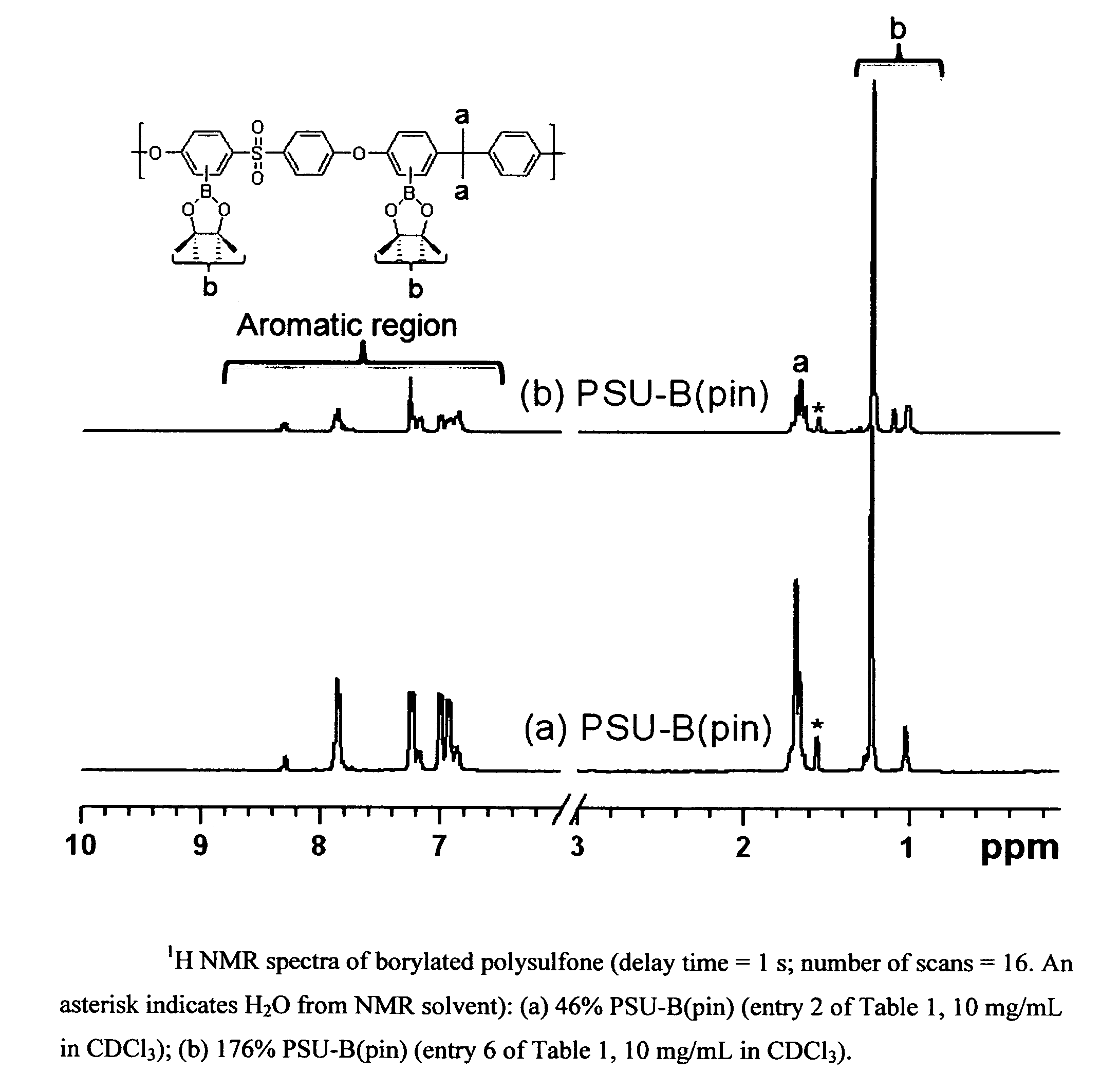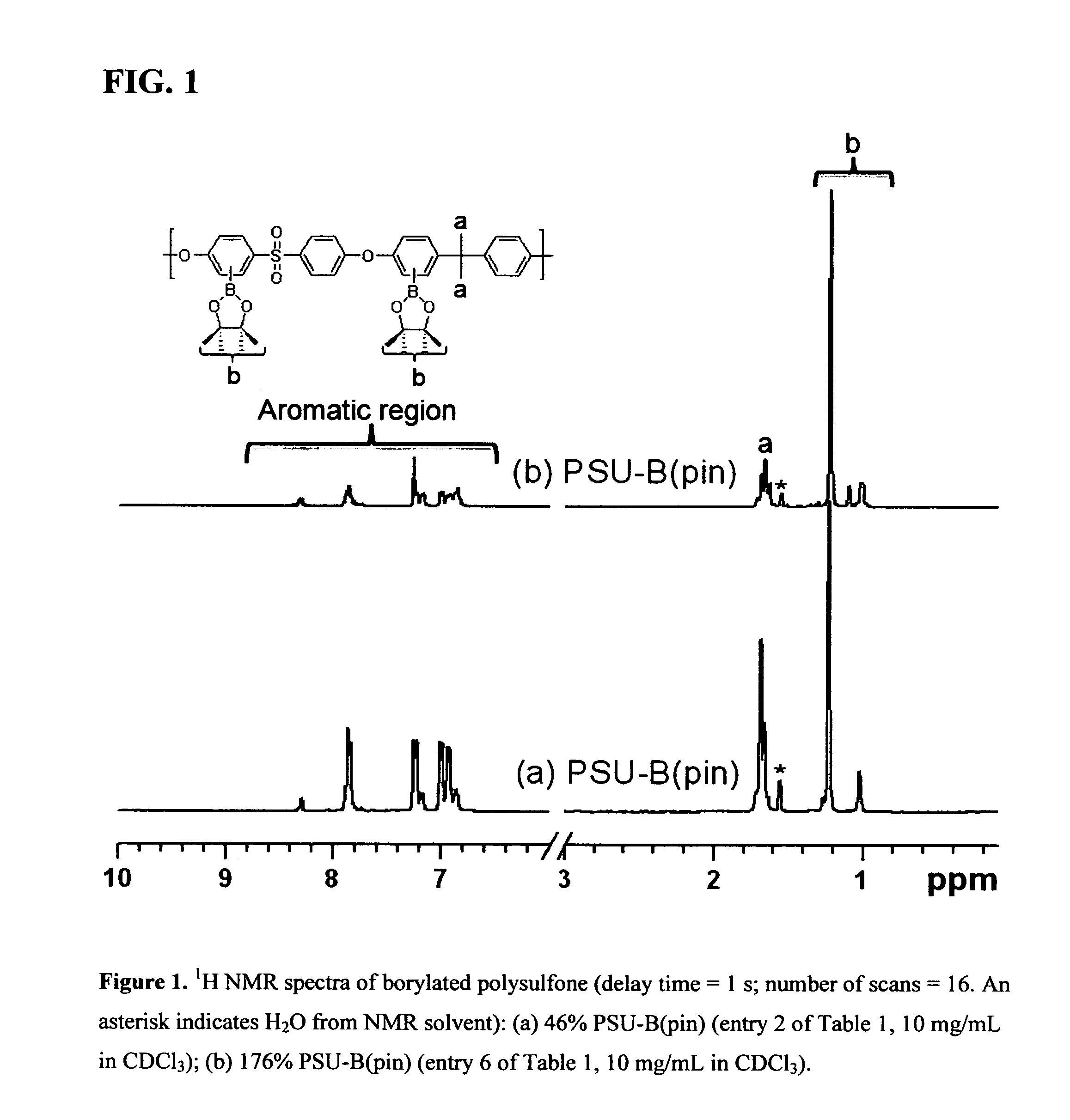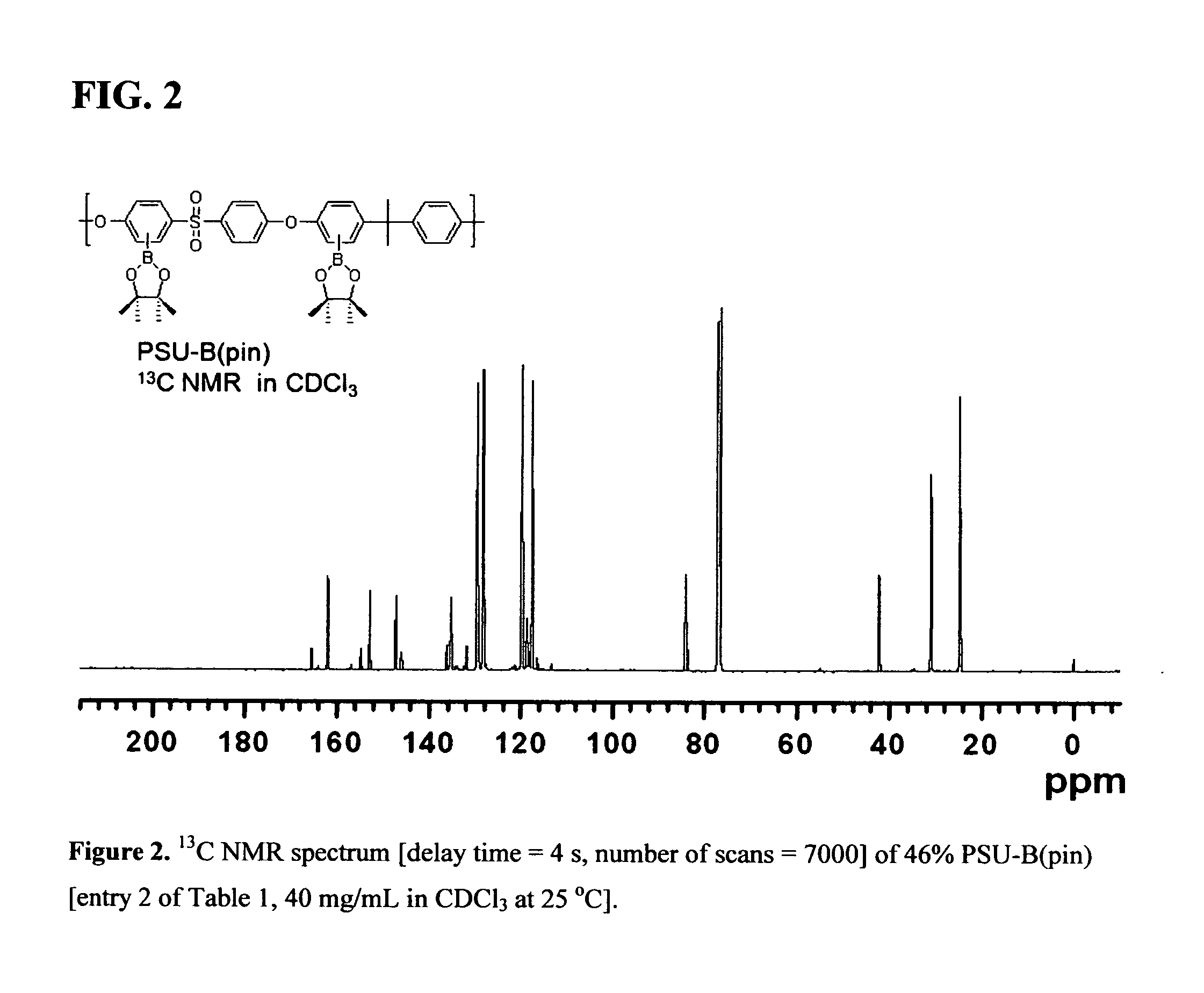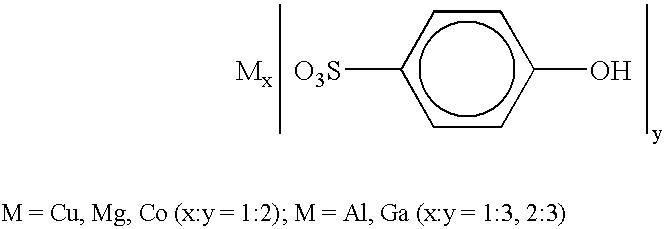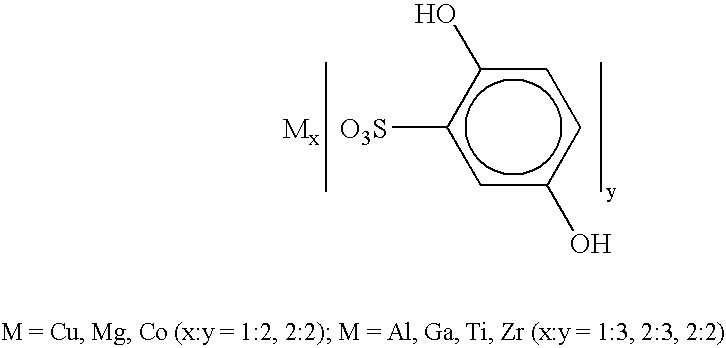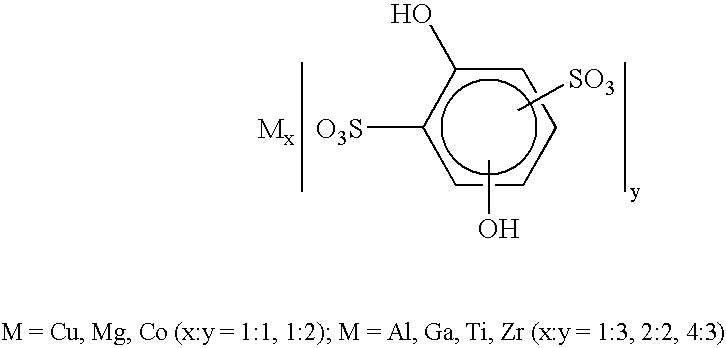Patents
Literature
221 results about "Aromatic moiety" patented technology
Efficacy Topic
Property
Owner
Technical Advancement
Application Domain
Technology Topic
Technology Field Word
Patent Country/Region
Patent Type
Patent Status
Application Year
Inventor
The four drugs that contain aromatic moiety are fluconazole, celecoxib, stanozolol and tazobactum. The structures are shown in the picture attached, please hview the full answer.
Conjugates having a degradable linkage and polymeric reagents useful in preparing such conjugates
The present invention provides conjugates having a degradable linkage and polymeric reagents useful in preparing such conjugates. The conjugates as well as the polymeric reagents used to form the conjugates include at least one of each the following: an aromatic moiety comprising an ionizable hydrogen atom, a spacer moiety, and a water-soluble polymer. Methods of making polymeric reagents and conjugates, as well as methods for administering conjugates and compositions, are also provided.
Owner:NEKTAR THERAPEUTICS INC
Bis-transition-metal-chelate probes
A molecule for labeling a target material is provided including two transition-metal chelates and a detectable group. The molecule has the general structural formula (I):wherein: (a) Y and Y′ are each a transition metal, (b) R1 and R1′ are each independently CH(COO−), CH(COOH), or absent; (c) R2 and R2′ are linkers each having a length of from about 3.0 to about 20 Å; and (d) X is a detectable group. The linkers may be linear or branched, may contain aromatic moieties, and may optionally be further substituted. Methods of using the molecules of the invention as probes in detecting and analyzing target materials as well as kits including the molecule of the invention are also provided.
Owner:RUTGERS THE STATE UNIV
Process for recovering oil from subterranean reservoirs
This invention involves a process for recovering oil from a subterranean reservoir where an injection fluid containing one or more primary surfactants of the structure below along with one or more co-surfactants, solvent and optionally a viscosifier and one or more alkalis injected into one or more injection wells and the oil is recovered from one or more producing wells.where:Ar=any aromatic moiety,M=H, Na, K, Ca, Mg, NH4, or an amine,m+n=10 to 28,R, R′, R″=separately and independently H, CH3, branched alkyl having 2-30 carbons, linear alkyl having 2-30 carbons, CH3(CH2)mCH(CH2)nSO3M, O(CH2CH2O)xH, O(CHCH3CH2O)xH, or O(CH2CH2O)aO(CHCH3CH2O)bH,x=1 to 30,y=1 to 30,a+b=1 to 30.The primary surfactant may be prepared in the acid form at one location and shipped as a neat product to be formulated into the final injection brine at or near the point of injection.
Owner:OIL CHEM TECH
Fuel for jet, gas turbine, rocket and diesel engines
InactiveUS20050023188A1Hydrocarbon purification/separationSolid fuelsAromatic moietyComponents of crude oil
A fuel or fuel blendstocks for jet, gas turbine, rocket, and diesel engines, particularly jet and rocket engines utilizing components of conventional petroleum not currently utilized for jet, gas turbine, rocket, and diesel fuels, such as benzene, butanes, butanes, and methyl tert butyl ether (MTBE) alklyated with aromatic moieties to make monoaromatics used in jet and diesel fuels. Additionally, a fuel having such monoaromatics has multiple desired properties such as higher flash point, low pour point, increased density, better lubricity, aerobic degradability, reduction in toxicity, and additionally can deliver benefits in blendstocks.
Owner:THE PROCTER & GAMBLE COMPANY
Polyurethane-urea elastomers
The present invention is directed to polyurethane-urea materials and to a process for their production. These polyurethane-ureas are preferably optically clear and comprise the reaction product of a (cyclo)aliphatic polyisocyanate or prepolymer thereof, with an isocyanate-reactive component that comprises one or more aromatic diamines which contains two primary amine groups, and one or more compounds containing two secondary amine groups which may be linked to aliphatic and / or aromatic moieties. This isocyanate-reactive component may additionally comprise one or more hydroxyl-functional compounds. The present invention offers a relatively fast “Green-Cure Time” of solid polyurethane-ureas which enables these to be demolded in a relatively short time period, followed by subsequent post-curing outside the mold.
Owner:COVESTRO LLC
Thyroid receptor ligands and method II
New thyroid receptor ligands are provided which have general formula (I) in which: n is an integer from 0 to 4; R1 is halogen, trifluoromethyl, or alkyl of 1 to 6 carbons or cycloalkyl of 3 to 7 carbons; R2 and R3 are the same or different and are hydrogen, halogen, alkyl of 1 to 4 carbons or cycloalkyl of 3 to 5 carbons, at least one of R2 and R3 being other than hydrogen; R4 is a carboxylic acid amide (CONR′R″) or an acylsulphonamide (CONHSO2R′) derivative, or a pharmaceutically acceptable salt thereof, and all stereoisomers thereof; or when n is equal to or greater than one, R4 may be a heteroaromatic moiety which may be substituted or unsubstituted, or an amine (NR′R″). R5 is hydrogen or an acyl (such as acetyl or benzoyl) or other group capable of bioconversion to generate the free phenol structure (wherein R5=H). In addition, a method is provided for preventing, inhibiting or treating a disease associated with metabolism dysfunction or which is dependent upon the expression of a T3 regulated gene, wherein a compound as described above is administered in a therapeutically effective amount. Examples of such diseases associated with metabolism dysfunction or are dependent upon the expression of a T3 regulated gene include obesity, hypercholesterolemia, atherosclerosis, cardiac arrhythmias, depression, osteoporosis, hypothyroidism, goiter, thyroid cancer as well as glaucoma, congestive heart failure and skin disorders.
Owner:KARO BIO AB
Conjugates having a degradable linkage and polymeric reagents useful in preparing such conjugates
The present invention provides conjugates having a degradable linkage and polymeric reagents useful in preparing such conjugates. The conjugates as well as the polymeric reagents used to form the conjugates include at least one of each the following: an aromatic moiety comprising an ionizable hydrogen atom, a spacer moiety, and a water-soluble polymer. Methods of making polymeric reagents and conjugates, as well as methods for administering conjugates and compositions, are also provided.
Owner:NEKTAR THERAPEUTICS INC
High refractive index pressure-sensitive adhesives
InactiveUS7166686B2Reduce reflectivityHigh refractive indexOrganic chemistryAromatic moietyRefractive index
The present invention provides pressure-sensitive adhesives having a refractive index of at least 1.48. The pressure-sensitive adhesives comprise at least one monomer containing a substituted or an unsubstituted aromatic moiety.
Owner:3M INNOVATIVE PROPERTIES CO
Hetero diels-alder adducts of pentacene as soluble precursors of pentacene
The present invention describes organic solvent-soluble Diels-Alder adducts of polycyclic aromatic compounds, such as, oligothiophene, perylene, benzo[ghi]perylene, coronene and polyacenes, with variety of dienophiles containing at least one heteroatom and in some cases two heteroatoms bonded to aromatic moiety, such as, thioxomalonates, azodicarboxylates, thialdehyde, acylnitroso and N-sulfinylamides. The Diels-Alder adducts are prepared by a simple, one step cycloaddition reaction of the polycyclic aromatic compounds, such as, pentacene, or other fused aromatic compounds, with heterodienophiles. The Diels-Alder adducts according to the present invention all form soluble adducts with pentacene and can be converted back to pentacene by retro-Diels-Alder reaction at moderate (60–250° C.) temperatures both in bulk, in solution or as thin-films.
Owner:GLOBALFOUNDRIES INC
Composite container having barrier property
InactiveUS6579580B1Easy to produceLow production costFlexible coversWrappersPolyolefinAromatic moiety
A composite container having a barrier property and comprising packaging material, the packaging material comprising a base material and a co-extruded laminate layered on the base material, the base material having a paper support with an inner surface and an outer surface and a polyolefin resin layer, the resin layer being attached on the outer surface of the paper support and constituting an outermost layer of the container, the laminate consisting of a polyolefin resin layer, a second adhesive layer, a barrier layer, a first adhesive layer, and another polyolefin resin layer being arranged in this order and having five layers in total. The container is formed by co extrusion of respective fused resins onto the base material, the former polyolefin resin layer of the laminate is directly applied onto the inner surface of the paper support, the latter polyolefin resin layer of the laminate constituting an innermost layer of the container and the barrier layer comprising polyamide resin having an aromatic moiety.
Owner:DAI NIPPON PRINTING CO LTD
Antireflective Coating Composition Comprising Fused Aromatic Rings
The present invention relates to an organic spin coatable antireflective coating composition comprising with (i) at least one unit with fused aromatic rings in the backbone of the polymer of structure (1), (ii) at least one aromatic unit ring in the backbone of the polymer of structure (2) where the aromatic ring has a pendant alkylene(fusedaromatic) group and a pendant hydroxy group, and, (iii) at least one unit with an aliphatic moiety in the backbone of the polymer of structure (3).where, Fr1 is a substituted or unsubstituted fused aromatic ring moiety with 3 or more fused aromatic rings, Fr2 is a fused aromatic ring moiety with 2 or more fused aromatic rings, Ar is a substituted or unsubstituted aromatic ring moiety, R′ and R″ are independently selected from hydrogen and C1-C4 alkyl, y=1-4, and B is a substituted or unsubstituted aliphatic moiety, and R1 is selected from hydrogen or aromatic moiety. The invention further relates to a process for imaging the present composition.
Owner:AZ ELECTRONICS MATERIALS USA CORP
Modulation of anxiety through blockade of anandamide hydrolysis
Fatty acid amide hydrolase inhibitors of the Formula:are provided wherein X is NH, CH2, O, or S; Q is O or S; Z is O or N; R is an aromatic moiety selected from the group consisting of substituted or unsubstituted aryl; substituted or unsubstituted biphenylyl, substituted or unsubstituted naphthyl, and substituted or unsubstituted phenyl; substituted or unsubstituted terphenylyl; substituted or unsubstituted cycloalkyl, heteroaryl, or alkyl; and R1 and R2 are independently selected from the group consisting of H, substituted or unsubstituted alkyl, substituted or unsubstituted heteroalkyl, and substituted or unsubstituted phenyl, substituted or unsubstituted biphenylyl, substituted or unsubstituted aryl, and substituted or unsubstituted heteroaryl; with the proviso that if Z is O, one of R1 and R2 is absent, and that if Z is N, optionally R1 and R2 may optionally be taken together to form a substituted or unsubstituted N-heterocycle or substituted or unsubstituted heteroaryl with the N atom to which they are each attached. Pharmaceutical compositions comprising the compounds of Formula I and methods of using them to inhibit FAAH and / or treat appetite disorders, glaucoma, pain, insomnia, and neurological and psychological disorders including anxiety disorders, epilepsy, and depression are provided.
Owner:UNIV DEGLI STUDI DI PARMA +1
Antireflective Coating Composition Comprising Fused Aromatic Rings
InactiveUS20100119980A1Photomechanical apparatusSemiconductor/solid-state device manufacturingHydrogenAromatic moiety
The present invention relates to an organic spin coatable antireflective coating composition comprising a polymer where the polymer comprises (i) at least one unit with fused aromatic rings in the backbone of the polymer of structure (1), (ii) at least one unit with of structure (2), and, (iii) at least one unit with a cyclic aliphatic moiety in the backbone of the polymer of structure (3).where, Fr1 is a substituted or unsubstituted fused aromatic ring moiety with 3 or more aromatic rings, R′ and R″ are independently selected from hydrogen, C1-C4 alkyl, Z, C1-C4alkyleneZ and where Z is substituted or unsubstituted aromatic moiety, R1 is selected from hydrogen or aromatic moiety, and B is a substituted or unsubstituted cycloaliphatic moiety. The invention further relates to a process for imaging the present composition.
Owner:AZ ELECTRONICS MATERIALS USA CORP
Polyesters comprising fluorovinylether functionalized aromatic moieties
Disclosed are polyesters, particularly poly(trimethylene terephthalate), comprising fluorovinylether functionalized aromatic repeat units, and methods to make the polyester polymers. The polymers are useful for imparting soil resistance to polyesters, particularly in the form of fibers, fabrics, and carpets.
Owner:EI DU PONT DE NEMOURS & CO
Developable bottom antireflective coating compositions especially suitable for ion implant applications
InactiveUS20100196825A1Good reflectivity controlImprove adhesionPhotosensitive materialsSemiconductor/solid-state device manufacturingLithography processAromatic moiety
Compositions characterized by the presence of an aqueous base-soluble polymer having aromatic moieties and aliphatic alcohol moieties have been found which are especially useful as developable bottom antireflective coatings in 193 nm lithographic processes. The compositions enable improved lithographic processes which are especially useful in the context of subsequent ion implantation or other similar processes where avoidance of aggressive antireflective coating removal techniques is desired.
Owner:IBM CORP
Top antireflective coating composition with low refractive index at 193nm radiation wavelength
InactiveUS20070087285A1Photosensitive materialsPhotosensitive materials for photomechanical apparatusSolubilityAromatic moiety
Compositions characterized by the presence of an aqueous base-soluble polymer having aromatic moieties and a refractive index value n of less than 1.5 with respect to a radiation wavelength of 193 nm have been found which are especially useful as top antireflective coatings in 193 nm dry lithographic processes. Polymers with an ethylenic backbone and having fluorine and sulfonic acid moieties have been found to be especially useful. The compositions enable top reflection control at 193 nm while providing ease of use by virtue of their solubility in aqueous alkaline developer solutions.
Owner:IBM CORP
Oxidation resistant indicator molecules
ActiveUS7851225B2Oxidation resistance can be improvedMaterial analysis by observing effect on chemical indicatorGroup 3/13 element organic compoundsArylAromatic moiety
Compounds having enhanced oxidation stability are disclosed. The compounds have an aryl boronic acid residue having one or more electron withdrawing groups on the aromatic moiety which contains the boronic acid residue, such that the molecule has enhanced oxidation resistance as compared to a corresponding molecule without the one or more electron withdrawing groups.
Owner:SENSEONICS INC
N-type conjugated materials based on 2-vinyl-4,5-dicyanoimidazoles and their use in organic photovoltaics
InactiveUS20090032106A1Improve external quantum efficiencyEfficient and cost-effectiveOrganic chemistryFinal product manufactureAromatic moietyOrganic chemistry
There is provided novel n-type conjugated compounds based on 2-vinyl-4,5-dicyanoimidazole moieties conjugated via the vinyl group to an aromatic moiety. Also provided are thin films and photovoltaics comprising the novel compounds, as well as methods of synthesizing the compounds.
Owner:AGENCY FOR SCI TECH & RES
Functionalized silicate nanoparticle composition, removing and exfoliating asphaltenes with same
InactiveUS20140187449A1Organic detergent compounding agentsLighting and heating apparatusAromatic moietyNanoparticle
Removing an asphaltene particle from a substrate includes contacting a silicate nanoparticle with a chemical group to form a functionalized silicate nanoparticle, the chemical group includes a first portion; and a second portion comprising an aromatic moiety, the first portion being bonded to the silicate nanoparticle; contacting the asphaltene particle with the functionalized silicate nanoparticle, the asphaltene particle being disposed on the substrate; interposing the functionalized silicate nanoparticle between the asphaltene particle and the substrate; and separating the asphaltene particle from the substrate with the functionalized silicate nanoparticle to remove the asphaltene particle. A composition includes a functionalized silicate nanoparticle comprising a reaction product of a silicate nanoparticle and an aromatic compound; and a fluid. The aromatic compound includes a chemical group that includes a first portion, the first portion being directly bonded to the silicate nanoparticle in the functionalized silicate nanoparticle; and a second portion including an aromatic moiety.
Owner:BAKER HUGHES INC
Composition for metal electroplating comprising an additive for bottom-up filling of though silicon vias and interconnect features
ActiveUS20140097092A1Less timeLess effortSemiconductor/solid-state device manufacturingLiquid/solution decomposition chemical coatingAromatic moietyBackbone chain
Owner:BASF AG
Polycarbonate-polysiloxane copolymers, methods for the preparation thereof, and articles derived therefrom
A polycarbonate-polysiloxane copolymer comprising structural units of the formula:wherein each R1, R2, and R3 is independently the same or different monovalent C1-12 should this be C1-C13 like in the document? hydrocarbon group, G comprises a monovalent C6-1000 poly(oxyalkyl) group, each R4 and R5 taken together is independently the same or different divalent C3-30 hydrocarbon linking group wherein R4 is a C1-28 hydrocarbon and R5 is a C2-29 aliphatic group, a is 0 or greater, and b is one or greater; and structural units of the formula:wherein each R is independently the same or different C6-60 divalent hydrocarbon group, and at least 60% of the R groups comprise aromatic moieties.
Owner:SHPP GLOBAL TECH BV
Methods for enhancing nucleic acid hybridization
ActiveUS20110236898A1Improve quenching efficiencyImprove efficiencySugar derivativesMicrobiological testing/measurementArylHydrogen
A composition comprising an oligonucleotide having the structure 5′-Y1-L1-X-L2-Y2-3′. Y1 comprises a sequence of one or more DNA or RNA nucleotides, including a first nucleotide N1 having a 3′ phosphate covalently linked to L1. Y2 comprises a sequence of one or more DNA or RNA nucleotides, including a second nucleotide N2 having a 5′ phosphate covalently linked to L2. L1 and L2 each independently are a direct bond or a C1-C7 alkyl, alkynyl, alkenyl, heteroalkyl, substituted alkyl, aryl, heteroaryl, substituted aryl, cycloalkyl, alkylaryl, or alkoxyl group. X isR1 is a hydrogen or a C1-C8 alkyl. M is a label or ligand comprising a fused polycyclic aromatic moiety.
Owner:INTEGRATED DNA TECHNOLOGIES
High-Rigidity Electromagnetic Shielding Composition and Molded Articles Thereof
InactiveUS20130177765A1High mechanical strengthImprove conductivityShielding materialsNon-conductive material with dispersed conductive materialFiberPolymer science
A high-rigidity electromagnetic shielding composition includes: (A) about 10 to about 34 wt % of polyamide resin including an aromatic moiety in the backbone structure; (B) about 65 to about 85 wt % of carbon fiber; and (C) about 1 to about 20 wt % of metallic filler. The composition can have high modulus, electromagnetic shielding effects, and high surface conductance, and can thus be used to replace frames, brackets and the like for electronic devices.
Owner:CHEIL IND INC
Optical film and information technology apparatus comprising the same
ActiveUS20090197020A1Improve heat resistanceHigh mechanical strengthLiquid crystal compositionsDiffusing elementsIn planeAromatic moiety
The present invention relates to an optical film that comprises an aromatic based resin comprising a chain having the hydroxy group containing portion and aromatic moiety and a polarizing plate and an information electronic device that include the same. The in-plane retardation Rin is in the range of 0 to 600 nm and the thickness retardation Rth is in the range of 0 to 400 nm.
Owner:LG CHEM LTD
Method for preparing poly (ether ketone ketones)
ActiveUS9023468B2Reduce the amount of waterLower the volumeMonocomponent polyethers artificial filamentSynthetic resin layered productsAromatic moietyEther
A method of preparing a poly (ether ketone ketone) consisting essentially of the repeat unit:—Ar—O—Ar—C(═O)—Ar—C(═O)—wherein each Ar is independently an aromatic moiety is provided. The method may comprise the step of polymerising a monomer system in a reaction medium comprising: (a) a Lewis acid; and (b) a controlling agent comprising an aromatic carboxylic acid, an aromatic sulphonic acid, or a derivative thereof.
Owner:OXFORD PERFORMANCE MATERIALS
Polycarbonate-polyorganosiloxane copolymer and method for producing same
Provided is a polycarbonate-polyorganosiloxane copolymer having high impact resistance and excellent transparency, in particular, a high total light transmittance and a small haze, and a method of producing thereof. Specifically, provided is a polycarbonate-polyorganosiloxane copolymer, containing a main chain having a repeating unit represented by the following general formula (I) and a constituent unit represented by the following general formula (II), in which: n in the general formula (II) is 25 to 50; and the copolymer satisfies the following conditions (a) and (b): (a) a molded article having a thickness of 2 mm made of the copolymer has a total light transmittance measured based on ISO 13468 of 88% or more and a haze measured based on ISO 14782 of 0.7% or less; and (b) a molded article having a thickness of 3 mm made of the copolymer has a total light transmittance measured based on ISO 13468 of 88% or more and a haze measured based on ISO 14782 of 1.0% or less.(In the formulae, R1 and R2 each independently represent a halogen atom, an alkyl group or an alkoxy group, X represents a single bond, an alkylene group, an alkylidene group, a cycloalkylene group, a cycloalkylidene group, —S—, —SO—, —SO2—, —O— or —CO—, and a and b each independently represent an integer of 0 to 4. R3 to R6 each independently represent a hydrogen atom, a halogen atom, an alkyl group, an alkoxy group or an aryl group, Y represents a single bond, or an organic residue containing an aliphatic or aromatic moiety, and n represents an average repetition number.)
Owner:IDEMITSU KOSAN CO LTD
Marine diesel cylinder lubricant oil compositions
ActiveUS20150126422A1Improve thermal stabilityGood storage stabilityAdditivesAlkaline earth metalAromatic moiety
Owner:CHEVRON ORONITE TECH BV
N-type semiconductor materials for thin film transistors
A thin film transistor comprises a layer of organic semiconductor material comprising a tetracarboxylic diimide naphthalene-based compound having, attached to each of the imide nitrogen atoms, an aromatic moiety, at least one of which moieties is substituted with at least one electron donating group. Such transistors can further comprise spaced apart first and second contact means or electrodes in contact with said material. Further disclosed is a process for fabricating an organic thin-film transistor device, preferably by sublimation deposition onto a substrate, wherein the substrate temperature is no more than 100° C.
Owner:EASTMAN KODAK CO
Incorporation of functional groups into polymers using C-H activation
Designed functionality is incorporated onto a preformed aromatic polymer. The preformed aromatic polymer is provided in a reactive medium. Within that reactive medium is provided a borylation reagent and a catalyst for C—H borylation. A; and a C—H position on an aromatic ring on the preformed aromatic polymer is catalytically borylated with the borylating agent to form a borylated aromatic moiety on the preformed aromatic polymer as an incorporated boryl functionality. That boryl functionality may then be reacted with designed alternative functionalities.
Owner:BOARD OF RGT NEVADA SYST OF HIGHER EDUCATION ON BEHALF OF THE UNIV OF NEVADA LAS VEGAS THE
Organometallic salts for inkjet receptor media
InactiveUS6703112B1Avoid necessityMinimize the possibilityOrganic chemistryDecorative surface effectsOrganic acidAromatic moiety
Organometallic salts useful for inkjet receptor media are disclosed. The organometallic salt can be a multivalent metal derivative of an aromatic carboxylic, sulfocarboxylic, sulfophenolic, or combination thereof. The aromatic moiety can be a simple aromatic, a condensed aromatic, a heterocyclic aromatic or a combination thereof. The multivalent metal ion can be derived from the group IIA to VIA and Group IB to VIIIB of elements in the Periodic Table. The organometallic salt simultaneously releases the multivalent metal cation and the organic acid anion for both pigment management and ink-drying.
Owner:3M INNOVATIVE PROPERTIES CO
Features
- R&D
- Intellectual Property
- Life Sciences
- Materials
- Tech Scout
Why Patsnap Eureka
- Unparalleled Data Quality
- Higher Quality Content
- 60% Fewer Hallucinations
Social media
Patsnap Eureka Blog
Learn More Browse by: Latest US Patents, China's latest patents, Technical Efficacy Thesaurus, Application Domain, Technology Topic, Popular Technical Reports.
© 2025 PatSnap. All rights reserved.Legal|Privacy policy|Modern Slavery Act Transparency Statement|Sitemap|About US| Contact US: help@patsnap.com
